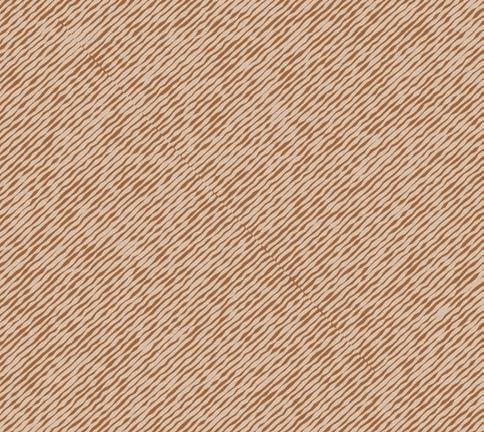
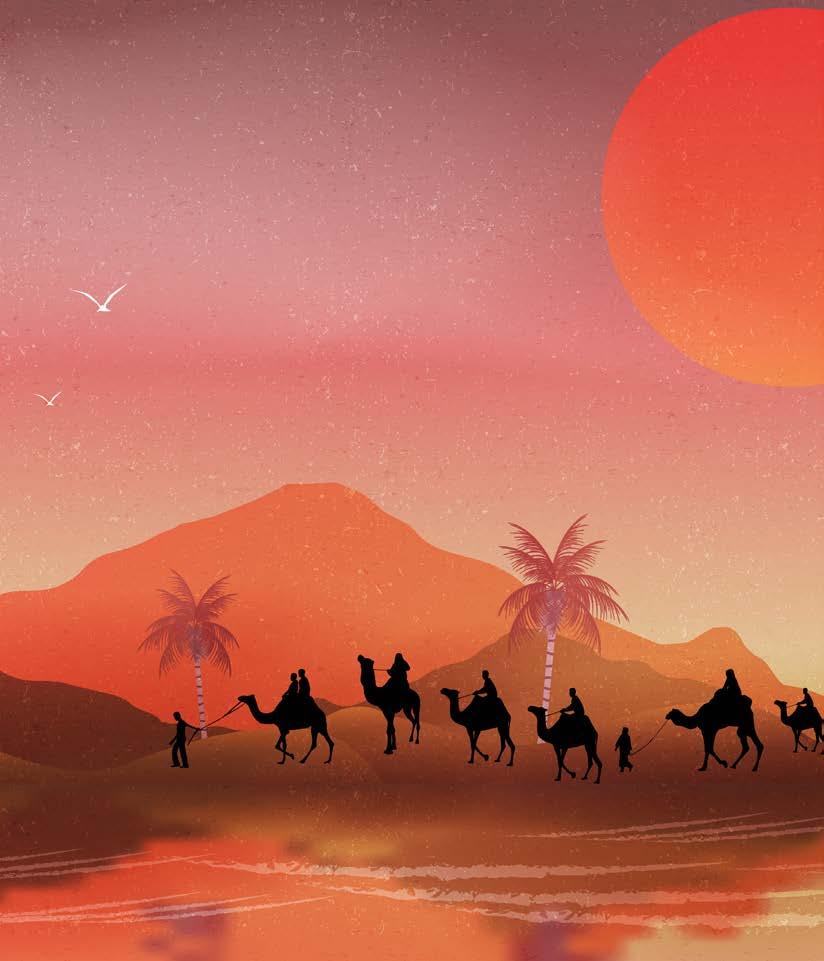
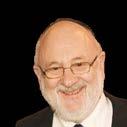
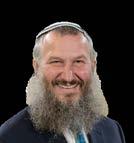
ISSUE 1498 DEC 31ST '22 ג"פשת תבט 'ז PARSHAT VAYIGASH ה"ב OU ISRAEL 02-560-9100 | TorahTidbits.com | ADVERTISING 02- 560-9125 שגיו תשרפ YERUSHALAYIM IN/OUT TIMES FOR SHABBAT PARSHAT VAYIGASH CANDLES 4:09PM • HAVDALA 5:26PM • RABBEINU TAM 6:03PM ואביו המירצמ ־לכו בקעי ותא וערז ו:ומ תישארב Wagons, Calves, and Responsibility Rabbi Dr. Tzvi Hersh Weinreb OU Executive Vice President, Emeritus page 16 Tragic Decisions Rabbi Gideon Weitzman Machon Puah page 52
2 TORAH TIDBITS 1498 / VAYIGASH 5783 Table of Contents 04Dear Torah Tidbits Family Rabbi Avi Berman 08The Joy of Holy Burdens Rabbi Moshe Hauer 10Aliya By Aliya Sedra Summary Rabbi Reuven Tradburks 16Wagons, Calves, and Responsibility Rabbi Dr. Tzvi Hersh Weinreb 20Reframing Rabbi Lord Jonathan Sacks zt"l 24Probing The Prophets Rabbi Nachman Winkler 26Yosef And Moshe – Two Approaches In Exile Rabbi Shalom Rosner 28Special Speech Rebbetzin Shira Smiles 32OU Israel Schedule 36Be the Guarantee Rabbi Judah Mischel 38Simchat Shmuel Rabbi Sam Shor 42Gateways to Exile Rabbi Moshe Taragin 46Recognizing the Land’s Extraordinary Force Rabbi Aaron Goldscheider 50Rings, Watches, and Tefillin Rabbi Daniel Mann 52Tragic Decisions Rabbi Gideon Weitzman 54Neta Revay and Shemitah #2 Rabbi Moshe Bloom 60Torah 4 Teens By Teens Gabriel Sachs // Kayla Feigenbaum *Menachem Persoff and Rabbi Chanoch Yeres' Divrei Torah can be found online at Torahtidbits.com Helpful Reminders KIDDUSH LEVANA 7 Days After Molad 7 Tevet/ Motzei Shabbat Dec. 31 Last Opportunity to Say Kiddush Levana until 14 Tevet/ Jan. 6 all night ASARA B'TEVET Tuesday, Jan. 3rd. - Fast begins (Jerusalem) - 5:22 am | Fast ends 5:07 pm On the 10th day of Tevet the armies of Nebuchadnezzar laid siege to Jerusalem.
JERUSALEM
VAYIGASH CANDLES
Yerushalayim / Maale Adumim 4:09
VAYECHI HAVDALA
Havdala Candles
5:26
5:31 4:14 5:34 4:32 5:28 Aza area (Netivot, S’derot, Et al) 4:27 5:32 4:33 5:26
Ranges 11 days Wed - Shabbat Dec. 28 - Jan. 7 / 4-14 Tevet
Earliest Tallit and Tefillin 5:43 - 5:45
Beit Shemesh / RBS 4:28
Sunrise 6:38 - 6:40
Sof Zman Kriat Shema 9:09 - 9:12

Raanana/ Tel Mond/ Herzliya/ K. Saba 4:25
Modi’in / Chashmona’im 4:25
5:31 4:30 5:26
Gush Etzion 4:25 5:31 4:30 5:26
5:31 4:30 5:26
Magen Avraham 8:30 -8:34
Sof Zman Tefila 9:59 - 10:03 (According to the Gra and Baal HaTanya)
Be’er Sheva 4:27
Rehovot 4:26
Petach Tikva 4:09
Ginot Shomron 4:24
Haifa / Zichron 4:13
Gush Shiloh 4:23
Tel Aviv / Giv’at Shmuel 4:25
Giv’at Ze’ev 4:24
Chevron / Kiryat Arba 4:25
Ashkelon 4:27
Yad Binyamin 4:26
Tzfat / Bik’at HaYarden 4:16
Golan 4:20
5:31 4:30 5:26
Netanya 4:24 5:33 4:32 5:28
5:32 4:31 5:27
5:31 4:14 5:26
5:30 4:29 5:25
5:30 4:18 5:24
5:30 4:28 5:25
5:32 4:30 5:27
5:31 4:29 5:26
5:31 4:30 5:26
5:33 4:32 5:28
5:32 4:31 5:27
5:27 4:21 5:22
5:27 4:26 5:22
Rabbeinu Tam (J'lem) - 6:03PM • next week - 6:08pm
(20 min. before sundown in most cities, 40 min. in Yerushalyim and Petach Tikva, 30 min. in Tzfat/Haifa)
Chatzot (Halachic Noon) 11:40 - 11:45
Mincha Gedola (Earliest Mincha) 12:10 - 12:15
Plag Mincha 3:40 - 3:46
Sunset (Including Elevation) 4:48 - 4:55
Seymour J. Abrams • Orthodox Union Jerusalem World Center • Avrom Silver Jerusalem College for Adults • Wolinetz Family Shul • Makom BaLev • Birthright • Yachad • NCSY in Israel • JLIC in Israel • Pearl & Harold M. Jacobs ZULA Outreach Center • The Jack Gindi Oraita Program • OU Israel Kashrut
ZVI SAND, PRESIDENT, OU ISRAEL
Yitzchak Fund, Former President, OU Israel Rabbi Emanuel Quint z”l, Senior Vice President | Prof. Meni Koslowsky, Vice President


VAAD MEMBERS: Dr. Michael Elman | Stuart Hershkowitz | Moshe Kempinski | Sandy Kestenbaum | Harvey Wolinetz RABBI AVI BERMAN, EXECUTIVE DIRECTOR, OU ISRAEL
David Katz, CFO, OU Israel | Chaim Pelzner, Director of Programs, OU Israel | Rabbi Sam Shor, Director of Programs, OU Israel Center Rabbi Sholom Gold, Dean, Avrom Silver Jerusalem College for Adults 22 Keren HaYesod <> POB 37015 <> Jerusalem 91370
phone: (02) 560 9100 | fax: (02) 561-7432 email: office@ouisrael.org website: www.ouisrael.org Founders and initial benefactors of the OU Israel Center: George and Ilse Falk a"h
Torah Tidbits and many of the projects of OU Israel are assisted by grants from THE JERUSALEM MUNICIPALITY
OU Israel, Torah Tidbits does not endorse the political or halachic positions of its editor, columnists or advertisers, nor guarantee the quality of advertised services or products. Nor do we endorse the kashrut of hotels, restaurants, caterers or food products that are advertised in TT (except, of course, those under OU-Israel hashgacha). Any "promises" made in ads are the sole responsibility of the advertisers and not that of OU Israel, the OU Israel Center , Torah Tidbits.
OU ISRAEL CENTER 3
AND HAVDALA TIMES CANDLE LIGHTING OU Kashrut NCSY Jewish Action JLIC
/ Yachad / Our Way OU West Coast OU Press Synagogue/Community Services OU Advocacy OU
NJCD
Israel
Chairman of the Board, Orthodox Union | Esther Williams, OU Israel Chair | Gary Torgow, Chair, OU Kashrus Commission RABBI MOSHE HAUER, EXECUTIVE VICE PRESIDENT Rabbi Joshua M. Joseph, Ed.D. Executive Vice President & Chief Operating Officer | Rabbi Dr. Tzvi Hersh Weinreb, Exec. V.P. Emeritus | Shlomo Schwartz, Chief Financial Officer | Lenny Bessler, Chief Human Resources Officer OU KOSHER: Rabbi Menachem Genack, CEO/Rabbinic Administrator OU Kosher | Rabbi Moshe Elefant, COO/Executive Rabbinic Coordinator ISRAEL: Rabbi Yissachar Dov Krakowski, Rabbinic Administrator | Rabbi Ezra Friedman, The Gustave & Carol Jacobs Center for Kashrut Education/Rabbinic Field Representative Headquarters: 40 Rector St. 4th floor, New York, NY 10006 212-563-4000 website: www.ou.org Editor Emeritus: Phil Chernofsky Editor: Rabbi Aaron Goldscheider | aarong@ouisrael.org Advertising: Ita Rochel | 02-5609125 or ttads@ouisrael.org Website: www.torahtidbits.com Not getting enough TTs? Too many? None at all? Contact our DISTRIBUTION 050-577-2111 • ttdist@ouisrael.org
MOISHE BANE, PRESIDENT OF THE ORTHODOX UNION Mitchel Aeder,
OTHER
TImes According to MyZmanim
Z'MANIM
DEAR TORAH TIDBITS FAMILY
As the lights of the menorah dwindled on the last night of Chanukah, the neshama of Rav Chaim Drukman returned to its Maker.
In just 90 years Rav Drukman had a direct hand in creating a foundation upon which Am Yisrael could thrive in Eretz Yisrael for generations to come. For those unfamiliar, Rav Drukman was born in Poland in 1932 and fled to Israel in 1944, surviving the Holocaust. Following his army service Rav Drukman studied at Mercaz Harav Yeshiva and became a close talmid of Rav Zvi Yehuda Kook. With Rav Kook’s direction, Rav Drukman moved to Merkaz Shapira and founded Yeshivat Or Etzion, named for the victims who struggled for the protection of Gush Etzion settlements during the War of Independence, which he led until his passing.
Identifying the opportunities for the development of Religious Zionism early on, Rav Drukman established Kibbutz Tirat Zvi and Kibbutz Saad, founded both the Yeshiva Tichonit and a military boarding school, while also serving as the head of Yeshivot and Ulpanot Bnei Akiva. Looking beyond the borders of Israel, Rav Drukman also spent time in Northern America where he served as a Bnei Akiva shaliach.
With a vision of uniting Torah with yishuv ha’aretz, Rav Drukman was one of the initial founders of the hesder yeshiva concept and helped found Yeshivat Kerem

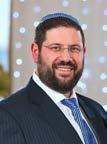
BeYavne. In time, Rav Drukman became a leading political figure in the Religious Zionism movement in his various roles in the Knesset and was a staunch advocate for Jewish settlements throughout Israel and its borders.
Although he ran from kavod, Rav Drukman was awarded the Israel Prize for his contributions for Jewish education in 2012. I am among those who were zoche to be a talmid of Rav Drukman during my high school years when I studied at Yeshivat Or Etzion from 1990 to 1994, and his impact on me remains. Rav Drukman was a passionate educator and gave his students the vision of geula, teaching us to look at everything that happens in Medinat Yisrael as a means to redemption. Some stories come to mind…
I fondly recall the excitement with which Rav Drukman would describe what took place on November 29, 1947, when the
4 TORAH TIDBITS 1498 / VAYIGASH 5783
Rav Drukman with Rav Schechter and Rav Ezra Friedman less than a year ago
RABBI AVI BERMAN Executive Director, OU Israel
UN voted on enabling the establishment of the State of Israel. In the span of hours, a people filled with quaking hearts suddenly transformed into a euphoric nation, and thousands of Jews filled the streets of Eretz Yisrael to celebrate with one another. “We didn’t stop dancing for one moment. Not to drink, not to eat or to rest. Our simcha was simply too great.” Rav Drukman also shared how it pained him to hear how people prepared for Yom Ha’atzmaut - planning parties instead of appreciating the tremendous neis and channeling our gratitude to the Borei Olam.
Prime Ministers and leaders of the Knesset frequented Rav Drukman’s home where many critical decisions were made. However, despite the influence he wielded, Rav Drukman’s enthusiasm for any initiative that would support the growth of Am Yisrael in Eretz Yisrael never dwindled. He would encourage his students to seek opportunities to contribute to Am Yisrael and gained tremendous sipuk from those who identified needs within Am Yisrael and implemented meaningful initiatives to bring their vision to life.
After many years of watching others approach Rav Drukman with their efforts, I was eager to share with him the newest OU Israel employee who would spearhead our Kashrut efforts in Eretz Yisrael - Rav Ezra Friedman who himself was a talmid of Rav Drukman. Rav Drukman was brimming with nachas and eagerly asked about the OU’s provision of Kosher certification and education to Am Yisrael within Eretz Yisrael.
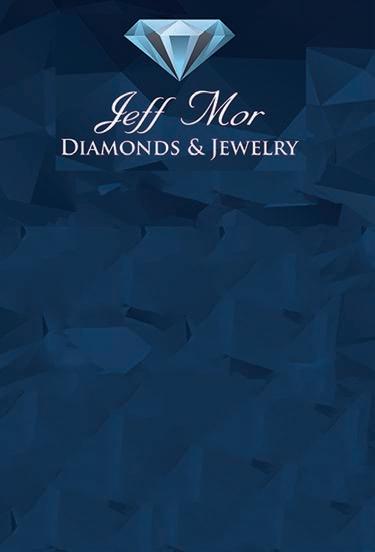
A sentiment that has been repeated since his passing is that Rav Drukman loved Am






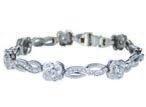

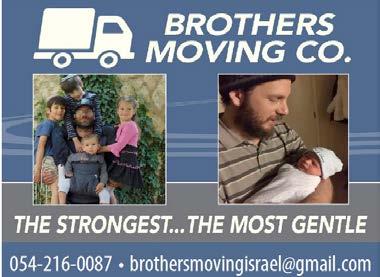
OU ISRAEL CENTER 5 True wholesaler from the diamond boursa with over 25 years experience member diamond dealers club Engagement Rings ∙ Stud Earrings Pendants ∙ Tennis Bracelets 050-573-9061 jeffmor36@gmail.com www.JeffMorDiamondJewelry.com
Yisrael, looked for the good in everyone and refused to say a bad word about a fellow Jew. Rav Drukman was the chazan for Rosh HaShana and Yom Kippur in the yeshiva. During Chazarat HaShatz of Ne’ilah, before concluding the tefillah of Modim, he would chant the following paragraph with heartfelt emotion:
Rav Drukman to its final resting place, is an experience that I know will impact us for years to come.

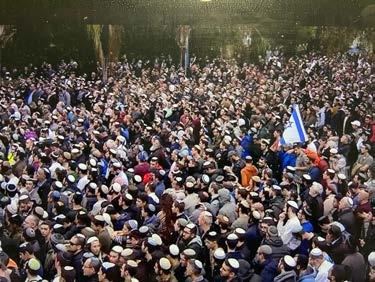
Our Father, our King, remember Your compassion and suppress Your anger. Bring an end to pestilence, bloodshed, famine, captivity, destruction, iniquity, plague, mishaps that are evil, all illness, all accidents, all strife, all manner of calamity, all decrease that are evil, and [all] hatred that is baseless from upon us and from upon all members of Your covenant. And seal a life that is good for all the members of Your covenant.
When he reached the phrase “םָּנִח תַאְנִׂשְו ּוניֵלָעֵמ ” the entire Beit Midrash shook with hundreds of talmidim who were moved to tears by the pain in Rav Drukman’s voice. I think of him during the Yamim Noraim every year, and am brought to tears once again as I share this memory with you.
My wife and I consider ourselves fortunate to have Rav Drukman serve as the mesader kiddushin at our wedding, and he has continued to serve as a role model for our family. Rav Drukman will always be my Rosh Yeshiva. Standing at his levaya beside my five older boys, witnessing the thousands of people who gathered in the torrential rains to escort the neshama of
The levaya of Rav Drukman

It is no surprise that HaKadosh Baruch Hu took a tzaddik, who brought tremendous light to Am Yisrael, on the eighth night of Chanukah. May Rav Drukman’s dedication to Am Yisrael and Eretz Yisrael inspire us all to support the needs of our fellow Jew.
Wishing you all an uplifting and inspiring Shabbat,
Rabbi Avi Berman Executive Director, OU Israel aberman@ouisrael.org
6 TORAH TIDBITS 1498 / VAYIGASH 5783
בֶרֶחְו רֶבֶד הֵּלַכְו ָךְסַעַּכ ׁשבְכּו ָךיֶמֲחַר רכְז ּונֵּכְלַמ ּוניִבָא" לָכְו הָלֲחַמ לָכְו עַר עַגֶפּו הָפֵּגַמּו ןוָעְו תיִחְׁשַמּו יִבְׁשּו בָעָרְו תַאְנִׂשְו הָעָר הָרֵזְּג לָכְו תוּיֻנָעְרֻפ יֵניִמ לָכְו הָטָטְק לָכְו הָלָּקַּת לָּכ םיִבוט םיִּיַחְל םותֲחַו :ָךֶתיִרְב יֵנְּב לָּכ לַעֵמּו ּוניֵלָעֵמ םָּנִח "ָךֶתיִרְב יֵנְּב
Rav Drukman with my father and Zaidy ה"ע at my wedding
and our next step will be to plant a fruit tree. I never thought of myself as being the agricultural type, but the feeling of settling and planting a portion of Eretz Yisrael, has been truly euphoric. Iy”H, when we plant our tree, and eat the fruits that will grow one day, I think we will be able to truly appreciate that unique Kedusha found in


To conclude, when you buy your Tu B'shvat fruit this year, don’t search for those dried apricots and banana chips imported from Turkey. Rather, head over to the fresh produce and buy yourself some nice juicy Kedusha-filled Jaffa oranges and thank in , imbibing that Kedusha in every bite that


OU ISRAEL CENTER 7 OU ISRAEL CENTER 75
FROM THE DESK OF RABBI MOSHE HAUER OU Executive Vice President

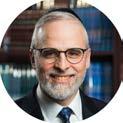
The Joy of Holy Burdens
When Yosef revealed his identity to his brothers, he joined with Pharaoh in sending wagons to carry Yaakov and his family back to Egypt. The verse (Bereishis 45:27) notes that it was only when he saw these wagons that Yaakov absorbed the news of Yosef’s survival . Rashi cites the classic comment from the Midrash (Bereishis Rabba 94:3) that explains this with a play on words, Agalah – Eglah, that Yosef by sending wagons (Agalos) was reminding Yaakov of their last shared session of Torah study where they had learned about the Eglah Arufah (see Dvarim Chapter 21).
There is, however, another version of this Midrash (see Matnos Kehunah commentary to Bereishis Rabba 94:3; Zohar I:211a) that draws a more direct line to Yosef’s wagons. This version suggests that Yosef sent six wagons, and in doing so was foreshadowing the six wagons referenced in Parshas Naso (Bamidbar 7:3). These wagons, used by the Levi’im to aid them in transporting elements of the Mishkan, were gifted by the leaders of the twelve tribes. These wagons represented both the partnership of the tribes with each other – as represented by the twelve leaders donating six wagons (see Sforno there) – as well as their clear desire to share the burden of privilege of carrying
the holy Mishkan. This holy burden was something they embraced and sought, rather than avoided. Thus, when Yosef sent for his family, he recalled those wagons of the Nesi’im, of the bearers of responsibility for their people and its holy mission. Yosef –who had been sold by his brothers to Egypt as an unwelcome burden – now welcomed those brothers and their families to Egypt, eager to bear the burden of privilege of caring for and sustaining them through the years to come. Witnessing his child’s eagerness, that joyous embrace of familial and sacred responsibility, brought Yaakov back to life.
One of life’s great gifts is the privilege to taste the joy of bearing the sacred burdens of our holy Torah, our holy people, and our cherished families. This is an endeavor that we all share together. I hope and pray that we can meet this opportunity and live lives of inspired responsibility.
8 TORAH TIDBITS 1498 / VAYIGASH 5783
the Torah learned from this issue of Torah Tidbits be in loving memory of and נ"על
BIBER z"l ל"ז גילעז רשא תב רביב האל On her 3rd Yahrzeit - תבט 'ז Dearly missed and always in the thoughts of her children, grandchildren and great-grandchildren
May
LILY
Biber and Frankfurter Families
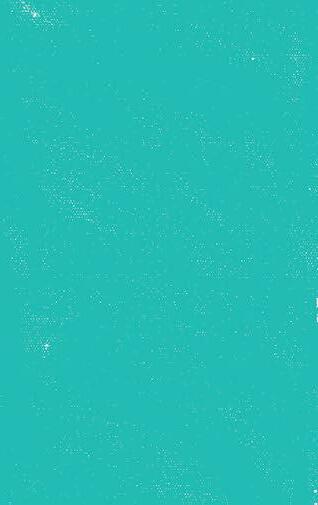







OU ISRAEL CENTER 9 kerenmalki.org 02-567-0602 Keren Malki empowers families of children with special needs in Israel to choose home care. Donations are tax-approved in Israel, US and UK. Honoring the memory of Malka Chana Roth ד”יה 1985-2001, killed in the Sbarro bombing. 7 people means me. is when what those purpose next very the heard. the to accept his is the G-d, his humility. people oppoastell My MarSea Modest Swim & Casualwear www.MarSeaModest.net (NIS) www.MarSeaModest.com ($USD) Marci Rapp 050-424-8359 davidz@AshkelonProperties.com LIVE OPPOSITE THE SEA 0544-332621 said another happy client Owning your own apartment does not just allow you freedom, but offers monetary savings, and an increase in your investment value. Anglo-populated, sunny Ashkelon is the answer! It’s very affordable – from $500,000 with just a 15% down payment, mortgages available as well as bank guarantees. Rental income often in excess of 3.5%. Your Jewelry is Worth Gold! @Fancycolors vmkdiamonds.com vmk_diamonds Jewelry Manufacturer Upgrade your old Jewelry piece to a new modern design Best rate for broken and old gold pieces, inheritances Service in Hebrew | English | French | Italian Safe & Convenient Member of the Israel Diamond Exchange & the World Federation since 1997 Pay Cash 054-397-7707 Mishael Vardi Ilana Nelson 054.5341403 www.integrityrealestate.co.il FOR RENT LOVELY, BRIGHT 3 RM APT #4 TCHERNICHOVSKY ST 85 M, WHEELCHAIR ACCESSIBLE FURNISHED WITH APPLIANCES 3RD FLOOR WITH ELEVATOR, IMMEDIATE 6500 NIS NEW RENTAL IN THE HEART OF SHAAREI CHESED IBN EZRA CORNER OF KKL 95 M, 4 ROOMS 1ST FLOOR WALK UP IMMEDIATE ENTRY
KI TEITZEII
VAYIGASH
ALIYA-BY-ALIYA SEDRA SUMMARY
Rabbi Reuven Tradburks Director of RCA Israel Region
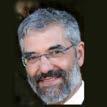
The Parsha begins in the middle of the story. Yosef has just told Yehuda and all the brothers that Binyamin, the thief, will become a slave to Yosef. All the others are free to leave. Our Parsha begins with Yehuda’s long and impassioned plea to Yosef to allow Binyamin to return home, while Yehuda will assume his place as a slave. Yosef is overcome. He orders all to leave. And tells his brothers, “I am Yosef”. He instructs them to bring Yaakov. Paro sends the brothers home with wagons to bring Yaakov and the rest of the family. Yaakov reunites with Yosef. The entire family settles in Goshen. Yaakov meets Paro. The famine gets worse. Yosef acquires all of Egypt for Paro.
1st Aliya (44:18-30) Yehuda pleads with Yosef: this is our father’s dear child. While you asked us to bring him here, we told you that leaving his father would break our father’s heart. When we needed to buy food, our father told us that if anything happened to Binyamin, he would descend to the depths. And now, if I return to my father without the boy, and his soul is bound to his….
The aliya ends suspended in the air. Yaakov and Binyamin, their souls are bound… There could be no better way to convey the drama; ending the aliya with their bound souls.
Yehuda earns leadership by this dramatic moment. He is assuming responsibility. He hasn’t said it yet, but he will in the next aliya – he will do anything to ensure Binyamin’s return home. His entire argument is one of concern for his father. His father will die of a broken heart, losing the only 2 sons from his dear wife.
Now, while Yehuda is the only actor in this aliya and while his actions are heroic and of powerful substance, there is a silent actor; Yosef. Let’s place ourselves in Yosef’s shoes. When we hear Yehuda’s words it is familiar to us, because we know the whole story until here. We were there when the brothers returned home, we heard the interactions with Yaakov, his anguish at the thought of Binyamin leaving.
Yosef knows nothing of this. Everything that happened after he was thrown in the pit is a blank to him. Is my father alive? What did he know about what happened to me? Why didn’t he come seeking me? What happened when I never returned home? Was my father pained? Did he miss me? We know Yaakov was inconsolable when the brothers brought the bloody coat. But Yosef doesn’t know.
Yehuda’s speech to Yosef is like drawing open the curtain – Yosef is now privy to what his father thought happened to him, how much his father loves Binyamin, who is like a replacement of Yosef to Yaakov. Dramatic is the moment when Yosef tells the brothers who he is; this moment for
10 TORAH TIDBITS 1498 / VAYIGASH 5783
Yosef is equally so. It is a glimpse into the home of his father, a home he has known nothing of for 22 years. This is the first time he hears that his father was heartbroken at what he thought was Yosef’s death. He didn’t seek me because he thought I was dead.
2nd Aliya (44:31-45:7) Yehuda continues: I guarantee Binyamin’s return. I will not be able to bear seeing Yaakov’s pain. I will stay in his stead as a slave. Yosef cannot bear this any longer. He orders all the others out. Alone with his brothers he states: I am Yosef your brother. Is our father still alive? The brothers are dumbstruck. He reassures them that his sale to Egypt was G-d’s plan in order to save the family through this famine.



What did Yehuda say that Yosef could no longer bear? The commentators read this in the context of Yosef’s intent throughout this story. Why did he accuse the brothers of being spies? And demand they bring Binyamin? And plant his goblet in Binyamin’s bag? It would seem he is trying to recreate the scene of the crime. They sold Yosef, their brother, as a slave. Would they sell Binyamin as a slave again; or have they repented? Yehuda’s offer to stay in Binyamin’s stead is a victory, teshuva.
It could be understood entirely differently. We know that Yaakov loved Yosef. With Yosef’s disappearance, that love for Yosef is now transferred to his brother, Binyanim. Binyamin is Yosef’s replacement in the family. With Yosef gone, Binyamin assumes his place. When Yehuda relates how much Yaakov loves Binyamin, Yosef is not hearing Binyamin, he is hearing Yosef.


OU ISRAEL CENTER 11
LIVE OPPOSITE THE SEA call David at 054-433-2621 davidz@AshkelonProperties.com www.ashkelonproperties.com L a r g e s t s e l e c t i o n o f s e a - v i e w p r o p e r t i e s f o r s a l e o r r e n t . J u s t 1 5 % d o w n , m o r t g a g e s a v a i l a b l e . O p p o s i t e t h e m a r i n a , s h o p p i n g , b e a c h e s a n d s y n a g o g u e s . Heavenly accommodations at down-to-earth prices.
Binyamin is a substitute Yosef to Yaakov. Yaakov’s love of Binyamin is really his love of Yosef in Yosef’s absence. Yosef, hearing of his father’s love for him is overcome. He needs to not only hear, but to see his father. And that is what he tells his brothers.
3rd Aliya (45:8-18) Yosef continues: G-d has sent me to be a master in Egypt. Quick, go tell our father that Yosef is a ruler in Egypt. And to come. You will settle in Goshen. Tell our father, bring our father. He hugs and kisses Binyamin, hugs and kisses the brothers. Paro hears and is pleased. He helps facilitate Yaakov’s journey.
Yosef is called Yosef Hatzadik not just because he withstood Potiphar’s wife’s advances. He mentions G-d 4 times. His speaks of G-d and he believes all his travails are G-d’s plan. He overlooks his personal travails by peering into the Divine. His
ascent to rule in Egypt is not him; it is G-d’s plan. He does not deny his powerful position, but views himself as but a pawn in the Divine Hand to help his family survive.
4th Aliya (45:19-27) Paro gives wagons to bring Yaakov. Yosef gives his brothers food and clothing; to his father, animals laden with provisions. The brothers tell Yaakov that Yosef is alive, ruler in Egypt. His heart skips a beat. Yaakov’s spirit revives.
Why does Yosef give his brothers clothes? And why, if Yaakov is to come quickly to Egypt, why send him animals laden with food?
The brothers took Yosef’s coat; Yosef gives the brothers clothes, a form of forgiveness.
And the dreams. Yosef dreamt of sheaves of wheat bowing to him. And of the stars bowing to him. Agriculture and power. Yosef sends word to Yaakov; I am the ruler. And look at the agricultural bounty. The dreams came true. But not in the Land of Israel. In the land of Egypt.
5th Aliya (45:28-46:27) Yaakov offers offerings in Beer Sheva. G-d calls to him; Yaakov, Yaakov. And he says, Hineni. Don’t be afraid. I will go down with you and I will bring you back up. The entire family descends. The Torah lists the genealogy of the family; the 70 souls who came to Egypt.
This simple aliya changes everything. The twists and turns of the story of the brothers are now seen in a wide angle; the camera moves from close up, to a wide lens. Yaakov is thinking Jewish history. Avraham was told his children will be slaves in a foreign land for 400 years. Yaakov, while anxious to see Yosef, is nervous
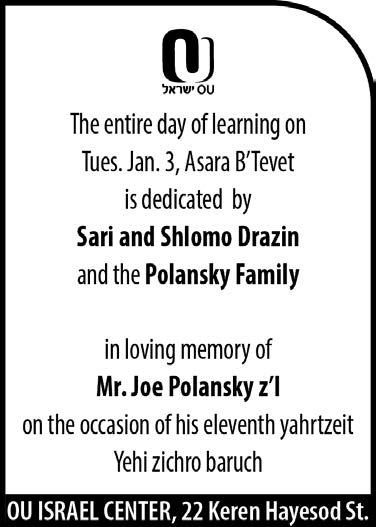
12 TORAH TIDBITS 1498 / VAYIGASH 5783
about moving his entire family to Egypt. Will they ever return? Is he complicit in abandoning the promise that the Jews will live in the Land of Israel?
G-d calls him with that phrase that rings of drama: Yaakov, Yaakov. Hineni. G-d reassures him; I will bring you back.


And in the next paragraph, the genealogy begins and ends with the same phrase: these are the Bnei Yisrael that came to Egypt. Jewish history now leaves the Land of Israel. And will not return for the entire rest of the Torah. Yaakov was justified in his fear. This is the moment of exile of the Jewish people from the Land of Israel.
6th Aliya (46:28-47:10) Yaakov and Yosef reunite, with hugs and tears. Yosef plans carefully with the brothers. They are to tell Paro they are shepherds. They will settle in Goshen. Paro agrees to what Yosef has planned. Yaakov blesses Paro.
The dramatic reunion is 2 verses. Somewhat anticlimactic. Yosef successfully arranges for his family to be preserved; both materially and by remaining together and away from the Egyptians.
Oh, what a bitter irony. Because we know what comes next. The Torah has moved on from the story of Yosef and his brothers and his father. The Torah is now describing the story of the Exodus from Egypt. You know how the Exodus story began? Yosef moved his whole family to Egypt. He settled them successfully; perhaps too successfully?
tions of Yishmael are enumerated. Yishmael dies. Hisous and powerful offspring. The brevity
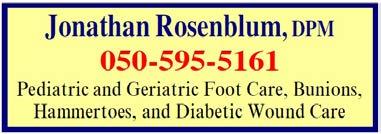

and began father’s that his icant the
BY RABBI Rav, Beit Knesset
OU ISRAEL CENTER 13
GET A PROFESSIONAL VISION EXAM 02-674-3888 FREE exam with purchase USING THE MOST ADVANCED DIAGNOSTIC EQUIPMENT Multifocal Experts Contact lens fittings Satisfaction guaranteed! • Wide selection of beautiful frames You Deserve a Professional Vision Exam Please call for an appointment Macabi and Meuchedet benefits 12 TORAH TIDBITS 1440 / CHAYEI SARA 5782
When Avraham addresses the people of Cheit, trying to “Ger V’Toshav Anochi Eimachem” (23:4) “A Stranger and This seems to be a contradiction. If one is a stranger than The Magid of Dubno (Jacob ben Wolf Kranz 1741-1804) this tense situation in order to, both, state his truth and be said, on the one hand, “I am a Resident’ due to G-d’s promise need your agreement to purchase a plot. In other words, Avraham “strangers”, while they understood him as saying that “they” The peace was kept, and Avraham remained true to his completes the generational transfer – He blesses
The
will be Yitzchak and not
Yitzchak.
Jewish people
Yishmael.
7th Aliya (47:11-27) Yosef supports his family. The food in Egypt becomes scarce; all is precarious. Yosef acquires gold, livestock and land for Paro. Save the land of the priests. The people become slaves to Paro. Yaakov and the family dwell in Goshen, take root there and prosper.
The irony continues. Yosef creates a hugely powerful Paro; money, livestock, food stores, slaves. Control over all of Egypt. What irony; Yosef has created the first chapter of the Egypt story. A hugely powerful Paro. The entire Jewish people in Egypt. Remember Yosef Hatzadik, so called because he saw G-d’s plan. As he told his brothers, “G-d has placed me here to save you in the time of famine.” Well, Yosef was wrong. He only saw chapter 1 of the story. The real story is that G-d has placed me here to bring you all to Egypt, to solidify the power of Paro. That will result in you being slaves. And leaving
STATS
11th of 54 sedras; 11th of 12 in B’reishit Written on 178.07 lines (ranks 34th) Vayigash is composed of 3 parshiyot, all closed, one VERY closed. Actually, Vayigash has only 2.89 parshiot; it ends after 34 p’sukim of a 38-pasuk parsha; Vayigash is the only sedra that does not end with a parsha break. (This shows up in a printed Chumash by there not being a PEI-PEIPEI or SAMACH- SAMACH-SAMACH between Vayigash and Vayechi.)
106 p’sukim - ranks 28th; tied with Toldot and Bo. It is much smaller than Bo, a bit larger than Toldot 1480 words (30th); 5680 letters (29th) 9th (of 12) in B’reishit in all 3 categories
MITZVOT
No mitzvot are counted from Vayigash One of 17 sedras without mitzvot.
Egypt amidst signs and wonders. Yosef is a pawn. But in a much bigger story; the story of enslavement and ultimately, the Exodus from Egypt.
HAFTORAH VAYIGASH YECHEZKEL 37:15-28
This week’s haftorah highlights the unification of the kingdoms of Yehudah and Yosef that will ultimately transpire in the Messianic Era.
This theme clearly echoes the beginning of this week’s parsha: “And Yehuda approached Yosef.”
The great prophet Yechezkel shares a communication he received from God in which he was instructed to take two sticks and write on one, “For Yehuda and the children of Israel his companions” and on the other, “For Yosef, the stick of Ephraim and all the house, his companions.” After doing so he was then told to put the two sticks near one another - and the Almighty fused them together into a single stick.
God explains the meaning of the symbolic gesture. These sticks represent the warring kingdoms within the House of Israel. The fusing of the sticks represented the merging of the kingdoms that will transpire during the Messianic Era. The Mashiach, a descendant of David, will arrive and lead the unified people of Israel.
The haftorah ends with a promise from Hashem that “they shall dwell on the Land that I have given to My servant, to Yaakov, wherein your father lives; amd they shall dwell upon it, they and their children and their children’s children, forever and My servant David shall be their prince forever.”
14 TORAH TIDBITS 1498 / VAYIGASH 5783
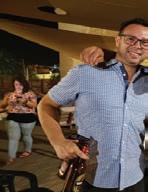
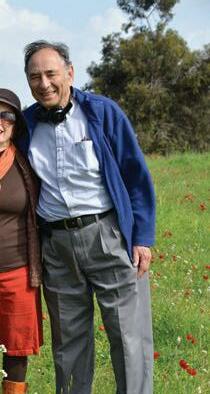
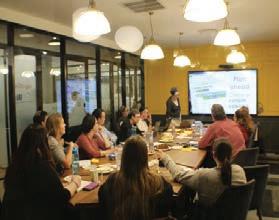
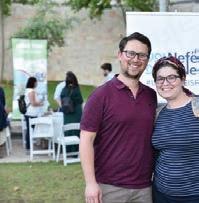
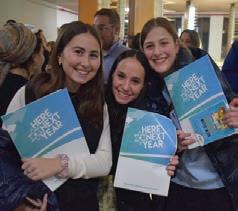
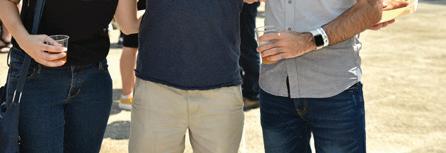
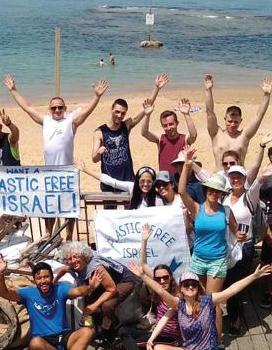

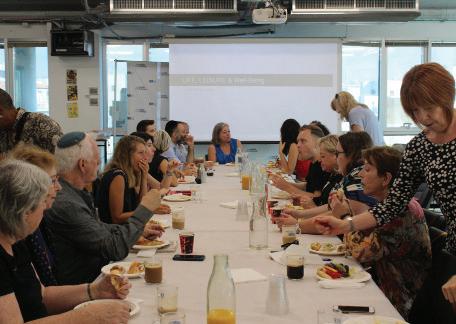
OU ISRAEL CENTER 15 www.theisraelcalendar.org Visit The Nefesh B'Nefesh Israel Calendar to explore English-language events taking place all over the country!
THE PERSON IN THE PARSHA
BY RABBI DR. TZVI HERSH WEINREB OU Executive Vice President, Emeritus
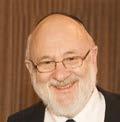
Wagons, Calves, and Responsibility
I have been blessed with many fine teachers. She was one of the best.
Her name was Mrs. Lachmann. I no longer recall her first name. She taught an advanced course in world literature at the college I attended, and she insisted that we call her Mrs. Lachmann, although, as I later discovered, she had earned a doctorate with honors at a very prestigious European university
The course was an elective, and I was motivated to take it because of my fondness for literature, which I developed quite early in my childhood. I was already familiar with some of the authors of our assigned readings, all of whom were 19th century Russian or German writers and assumed that the course would be an easy one for me.
Religious Caregiver
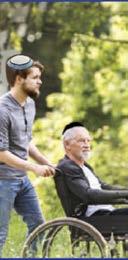
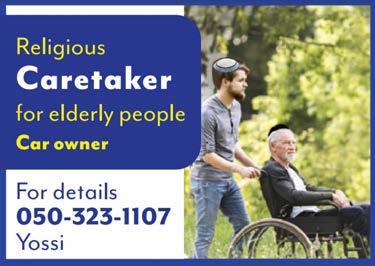
I was a philosophy major then and was particularly impressed by her assertion, in the very first-class session, that great literature is an important source of philosophical ideas. In fact, she insisted that a work of literature bereft of philosophical lessons could not qualify as great literature.
As the course progressed, two things became apparent. First of all, it was not going to be nearly as easy a course as I had anticipated. Furthermore, it was not philosophy in general that was her sine qua non for great literature. It was one specific concept that mattered so much to her. That was the concept of ethical responsibility.
I can still hear her, with her central European accent, making the case that great writers of fiction portray their characters in light of whether or not they meet their responsibilities.
“Several central questions are posed in all works of literature,” she would say. She would then proceed to list those questions: “How do the heroes or villains of the novel define their responsibilities? Do they consider the long-term consequences of their actions? Do they feel accountable to others? To what degree is their sense of responsibility central to their personalities?”
She would quote the words of Fyodor Dostoevsky, who wrote The Brothers Karamazov, which was, in her opinion, the greatest novel of all time: “We are all responsible for all… for all men before all, and I more than
16 TORAH TIDBITS 1498 / VAYIGASH 5783
Car owner
all the others.”
I remember her remark at the end of her final lecture: “The theme of all great literature is the theme of responsibility.”
Over the years, I have come to realize that Mrs. Lachmann’s insight was not limited to the Russian and German writers of the 19th century. It applies even more to biblical literature. Indeed, I am convinced that the theme of personal responsibility is the core theme of Sefer Bereshit, the Book of Genesis.
One example of the theme of responsibility can be found in a verse in this week’s Torah portion, Vayigash (Genesis 44:1847:27), as explained by Rashi.
In the story, Joseph finally revealed himself to his brothers. They journeyed back to Canaan and informed Jacob that Joseph is still alive. Initially, Jacob did not believe them. The verse then reads: “But when they recounted all that Joseph had said to them, and when he saw the wagons [Hebrew: agalot] that Joseph had sent to transport him, the spirit of their father Jacob revived. ‘Enough!’ said Israel. ‘My son Joseph is still alive! I must go and see him before I die.’”
Rashi wonders what it was about the wagons, the agalot, that convinced Jacob and revived his spirit. Rashi tells us that these wagons were a sign sent by Joseph to Jacob, recalling the subject of their learned conversation when they first parted ways so long ago.
That subject is the ritual of the “calf [Hebrew egla] with a broken neck,” the details of which are described in the first several verses of Deuteronomy 21. Joseph was apparently confident that Jacob would see the connection between the word for
wagons, agalot, and the word for calf, egla.
The reader of Rashi’s words cannot help but ask with astonishment: Is this some game, some bizarre wordplay? Agala calls to mind egla? What connection can there be between the ritual of the calf and Jacob’s parting words of instruction to Joseph before sending him off on his mission to his brothers, never to see him again until this moment?
To answer this question, we must reflect upon the meaning of the ritual of the “calf with a broken neck.”. It is a ritual that is performed by the elders of the city nearest to a discovered murdered corpse, whose murderer is unknown. The elders must wash their hands over the calf whose neck was broken and declare that they did not shed this blood.
The Mishnah asks, “Can we possibly suspect the elders of the city of murder?” The Mishnah answers that they must declare that they did not allow the victim to pass through their city unfed, nor did they allow him to part their city without escorting him along his way.
The early 17th century commentator Kli Yakar understands this to mean that the elders must declare that they treated the victim decently and humanely. Had they not done so, they would be, however indirectly, responsible for the murder. Their failure to treat their fellow properly would render them responsible for his tragic end. The theme of responsibility for the longterm consequences of one’s interactions is the dominant theme of this ritual.
As the Kli Yakar explains, if the elders of the city are not hospitable to the wayfarers who frequent the city, the criminals who
OU ISRAEL CENTER 17
populate the environs of the city will assume that this wayfarer is of no import, and they will therefore take liberties with him, even to the point of shedding his blood. Were these villains to observe that the wayfarer was significant enough to the elders of the city to be treated graciously, they would have refrained from harming him.
This is the nature of responsibility. The elders are not suspected of actual murder. But if they treat their guests improperly, they set in motion a process by which those guests are dehumanized, becoming easy prey to malicious persons. That is how far the demands of responsibility extend.
When Jacob sent Joseph on his dangerous mission, continues Kli Yakar, he escorted Joseph part of the way. By doing so, he was teaching Joseph the lesson of the “calf with a broken neck,” the lesson of the importance of escorting the traveler, thus demonstrating the human value of that traveler. Joseph signaled to his father that he learned that lesson well and knew the responsibility entailed in dealing with one’s fellow.
Jacob realized that it was Joseph who personally had a hand in sending the wagons of Pharaoh, thereby escorting his brothers part of the way back to Canaan. Jacob took note of those wagons and therefore knew that Joseph had learned that a minor gesture of considerate behavior to others may have long-term consequences. He signaled that he had learned the crucial importance of taking responsibility for all one’s actions,
however insignificant they may appear. And so, “The spirit of their father Jacob revived.”
Agalot and egla are not just words in a linguistic game. Rather, they allude to the profound lesson about personal responsibility, which is the basis of the requirement of the elders to proclaim their innocence of murder.
Let’s return to Mrs. Lachmann, may God bless her soul. The reunion of Jacob and Joseph contains the implicit theme of which she spoke with such lasting impact so many years ago.

Recall the questions that Mrs. Lachmann listed. “How do the heroes or villains of the novel define their responsibilities?” Joseph defines his responsibilities in terms of the need to be sensitive to other human beings.
“Do they consider the long-term consequences of their actions?” Joseph certainly does.
“Do they feel accountable to others?” Again, Joseph can answer with a resounding “Yes.”
“To what degree is their sense of responsibility central to their personalities?” Joseph demonstrated that his sense of responsibility was part of his very essence.
If, as Mrs. Lachmann contended, a profound sense of responsibility is the test of the true hero, Joseph certainly passed that test.
18 TORAH TIDBITS 1498 / VAYIGASH 5783
Netanya - Torah Tutor for Teenagers & Children who are Olim or with learning difficulties Also teaches the elderly in english/yiddish Call Liran - 058 7701193 onlinejudaism@judaism.com
THE FREEDOM OF MOBILITY EVEN ON SHABBAT
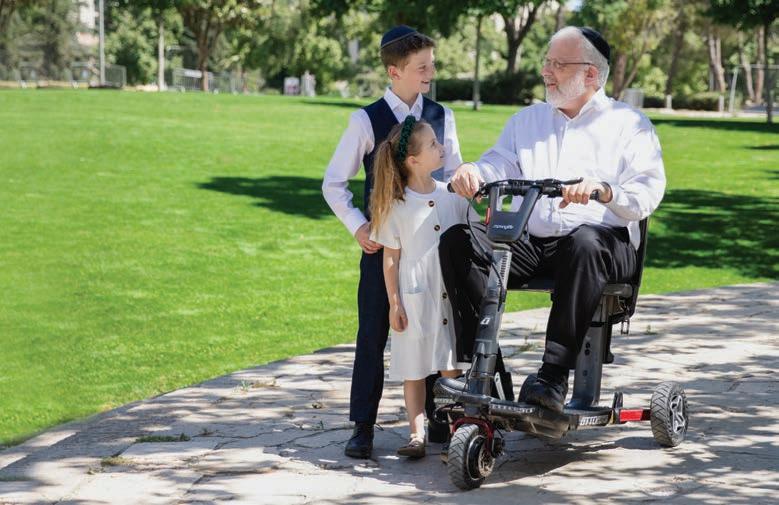
Get to shul easily on Shabbat? Load the scooter into the car’s trunk and drive to the children for Shabbat? Fly to a fun vacation abroad? With a SHABBATTO mobility scooter, anything is possible! It features an integral “mehudar” mechanism, and therefore doesn’t require tricky and costly installation, as in other scooters.
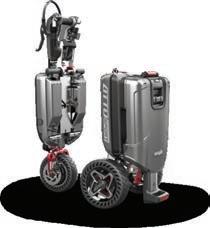

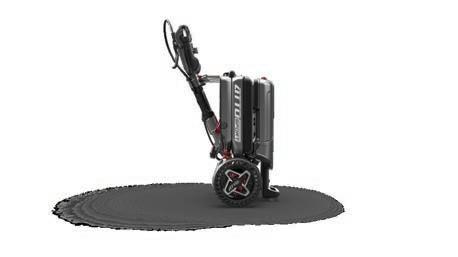
Splits into 2 lightweight parts, for easy lifting. is approved for air travel.
Spacious legroom and high ground clearance.
For more information and a free, no-obligation demo: movinglife.co.il/torah 077-2305650
OU ISRAEL CENTER 19
Thoughts on
Weekly
Reframing
Maimonides called his ideal type of human being – the sage – a rofeh nefashot, a “healer of souls.”1 Today we call such a person a psychotherapist, a word coined relatively recently from the Greek word psyche, meaning “soul,” and therapeia, “healing.” It is astonishing how many of the pioneering soul-healers in modern times have been Jewish.
Almost all the early psychoanalysts were; among them Sigmund Freud, Alfred Adler, Otto Rank, and Melanie Klein. So overwhelming was this, that psychoanalysis was known in Nazi Germany as the “Jewish science”. More recent Jewish contributions include Solomon Asch on conformity, Lawrence Kohlberg on developmental psychology, and Bruno Bettelheim on child psychology. From Leon Festinger came the concept of cognitive dissonance, from Howard Gardner the idea of multiple
1 Rambam, Shemoneh Perakim, Ch. 3.
intelligences, and from Peter Salovey and Daniel Goleman, emotional intelligence. Abraham Maslow gave us new insight into motivation, as did Walter Mischel into self-control via the famous “marshmallow test”. Daniel Kahneman and Amos Tversky gave us prospect theory and behavioural economics. Most recently, Jonathan Haidt and Joshua Green have pioneered empirical study of the moral emotions. The list goes on and on.
To my mind, though, one of the most important Jewish contributions came via three outstanding figures: Viktor Frankl, Aaron T. Beck, and Martin Seligman. Frankl created the method known as logotherapy, based on the search for meaning. Beck was the joint creator of the most successful form of treatment, cognitive behavioural therapy. Seligman gave us positive psychology, that is, psychology not just as a cure for depression but as a means of achieving happiness or flourishing through acquired optimism.
These are very different approaches, but they have one thing in common. They are based on the belief – set out much earlier in Chabad Hasidism, in Rabbi Schneur Zalman of Liadi’s Tanya – that if we change the way we think, we will change the way we feel. This was, at the outset, a revolutionary

20 TORAH TIDBITS 1498 / VAYIGASH 5783
יוליעל ה״ע זייא דוד לארשי תב הדלוגו רשא בקעי ןב סחנפ ה״ע רטרש קחצי תב הינעמו בייל הירא ןב לאירזע
תומשנ
the
Parsha from RABBI LORD JONATHAN SACKS ZT"L Former Chief Rabbi of the United Hebrew Congregations of the Commonwealth
COVENANT & CONVERSATION
May the learning of these Divrei Torah be תמשנ יוליעל HaRav Ya'akov Zvi ben David Arieh zt"l
proposition in sharp contrast to other theories of the human psyche. There were those who believed that our characters are determined by genetic factors. Others thought our emotional life was governed by early childhood experiences and unconscious drives. Others again, most famously Ivan Pavlov, believed that human behaviour is determined by conditioning. In all of these theories our inner freedom is severely circumscribed. Who we are, and how we feel, are largely dictated by factors other than the conscious mind.
It was Viktor Frankl who showed there is another way – and he did so under some of the worst conditions ever endured by human beings: in Auschwitz. As a prisoner there Frankl discovered that the Nazis took away almost everything that made people human: their possessions, their clothes, their hair, their very names. Before being sent to Auschwitz, Frankl had been a therapist specialising in curing people who had suicidal tendencies. In the camp he devoted himself, as far as he could, to giving his fellow prisoners the will to live, knowing that if they lost it, they would soon die.
There he made the fundamental discovery for which he later became famous:

We who lived in concentration camps can remember the men who walked through the huts comforting others, giving away their last piece of bread. They may have been few in number, but they offer

OU ISRAEL CENTER 21
MASSAGE THERAPIST & FITNESS TRAINER 052.673.3704 I www.andyhealth.com | jerusalemmyhome@hotmail.com TUVIA ANDY HAAS BALANCE and FALL-PREVENTION SPECIALIST for OLDER ADULTS Maintain Healthy Bones and Muscles Decrease Stiffness and Joint Pain Increase Strength! Stay Independent!
sufficient proof that everything can be taken from a man but one thing: the last of the human freedoms – to choose one’s attitude in any given set of circumstances, to choose one’s own way. 2
What made the difference, what gave people the will to live, was the belief that there was a task for them to perform, a mission for them to accomplish, that they had not yet completed and that was waiting for them to do in the future. Frankl discovered that “it did not really matter what we expected from life, but rather what life expected from us.”3 There were people in the camp who had so lost hope that they had nothing more to expect from life. Frankl was able to get them to see that “life was still expecting something from them.” One, for example, had a child still alive in a foreign country, who was waiting for him. Another came to see that he had books to produce that no one else could write. Through this sense of a future calling to them, Frankl was able to help them to discover their purpose in life, even in the valley of the shadow of death.
The mental shift this involved came to be known, especially in cognitive behavioural therapy, as reframing. Just as a painting can look different when placed in a different frame, so can a life. The facts don’t change, but the way we perceive them does. Frankl writes that he was able to survive Auschwitz by daily seeing himself as if he were in a university, giving a lecture on the psychology of the concentration camp.
Everything that was happening to him was transformed, by this one act of the mind, into a series of illustrations of the points he was making in the lecture. “By this method, I succeeded somehow in rising above the situation, above the sufferings of the moment, and I observed them as if they were already of the past.”4 Reframing tells us that though we cannot always change the circumstances in which we find ourselves, we can change the way we see them, and this itself changes the way we feel.
Yet this modern discovery is really a re-discovery, because the first great re-framer in history was Joseph, as described in this parsha and the next. Recall the facts. He had been sold into slavery by his brothers. He had lost his freedom for thirteen years, and been separated from his family for twenty-two years. It would be understandable if he felt toward his brothers resentment and a desire for revenge. Yet he rose above such feelings, and did so precisely by shifting his experiences into a different frame. Here is what he says to his brothers when he first discloses his identity to them:
I am your brother, Joseph, whom you sold into Egypt. And now, do not be distressed or angry with yourselves that you sold me here, for God sent me ahead of you to save lives… God sent me ahead of you to ensure your survival in the land, and to save your lives.... So then it was not you who sent me here, but God. (Gen. 45:4–8)
2 Viktor Frankl, Man’s Search for Meaning, 75.
3 Ibid., 85.
And this is what he says years later, after their father Jacob has died and the brothers fear that he may now take revenge: Do not be afraid! Am I in the place of
4 Ibid., 82.
22 TORAH TIDBITS 1498 / VAYIGASH 5783
God? You intended to harm me, but God intended it for good, to bring about what is now being done: the saving of many lives. So do not be afraid. I myself will provide for you and your children. (Gen. 50:19–21)
Joseph had reframed his entire past. He no longer saw himself as a man wronged by his brothers. He had come to see himself as a man charged with a life-saving mission by God. Everything that had happened to him was necessary so that he could achieve his purpose in life: to save an entire region from starvation during a famine, and to provide a safe haven for his family.
This single act of reframing allowed Joseph to live without a burning sense of anger and injustice. It enabled him to forgive his brothers and be reconciled with them. It transformed the negative energies of feelings about the past into focused attention to the future. Joseph, without knowing it, had become the precursor of one of the great movements in psychotherapy in the modern world. He showed the power of reframing. We cannot change the past. But by changing the way we think about the past, we can change the future.
Whatever situation we are in, by reframing it we can change our entire response, giving us the strength to survive, the courage to persist, and the resilience to emerge, on the far side of darkness, into the light of a new and better day.
These weekly teachings from Rabbi Sacks zt”l are part of his ‘Covenant & Conversation’ series on the weekly Torah teaching. With thanks to the Schimmel Family for their generous sponsorship, dedicated in loving memory of Harry (Chaim) Schimmel. Visit www.RabbiSacks.org for more.

Jerusalem Real Estate is My Business
Eta: 054-723-3863 Rachel: 052-546-6425
Amazing
stand alone homes in OLD KATAMON, TALBIYA, BAKA, GERMAN COLONY
Allenby Complex. Across from BAKA. 160 sqm penthouse quiet with views. 4 bedrooms & 2.5 bathrooms. Shabbat elevator, sukka terrace from living room plus roof top terrace 2 parking & storage. 6,400,000 NIS
Yemin Moshe beautiful property over 300 sqm. 2 private entrances (complete separate unit over 90 sqm). large garden. Close to parking & gorgeous architectural design newly renovated. Call for more info
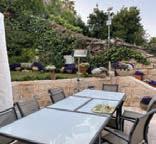

In the heart of BAKA enclosed in a magical courtyard: 3 bedrooms 2 full bathrooms one flight up. Beautiful spacious sukka terrace facing open gardens Completely renovated with architectual design & high level finishes. 6,250,000 NIS
Penthouse near BAKA. 154 sqm on one floor with 4 bedrooms and 2 full bathrooms. Shabbat elevator, 2 underground parking and 3 storage units!!! 25 sqm Sukka terrace off living room plus large roof top terrace. 6,250,000 NIS
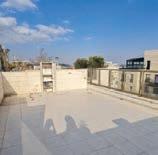
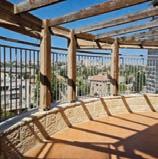
GERMAN COLONY 145 sqm apt. Duplex unit that is 1/3 of a private Templar house. Large salon/dining/ kitchen (open floor plan), 4 bedrooms (2 ensuite on main floor, 2 upstairs), study, 3.5 baths. House is in Tabu, private garden 135 sqm. 11,000,000 NIS
Eta Morris Realty, Ltd. etamorrisrealestate@gmail.com
Eta: 054-723-3863 · Rachel: 052-546-6425 etamorrisrealty.co.il
OU ISRAEL CENTER 23
PROBING THE PROPHETS
BY RABBI NACHMAN (NEIL) WINKLER Faculty, OU Israel Center
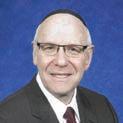
This week’s haftarah from Sefer Yechezkel marks the closing of the geula section of the book, a section that includes chapters 36 and 37. The theme of a reunification between Judea, the Southern Empire and Yosef (Ephrayim), the Northern Empire, mirrors the highlight of this morning’s parasha and explains its choice as the haftarah. Hashem’s command given to the navi to take two branches/ sticks and write “Yehuda” upon one stick and “Yosef” upon the other, is reminiscent of the directive that Hashem gave to Moshe (after the Korach rebellion), to take twelve staffs and to write the name of each tribe’s leader on his staff – and Aharon’s name of the staff of Levi. The clear contrast between these two seemingly similar acts, is, as Rav Amnon Bazak points out, that the purpose of Moshe’s action was to differentiate Aharon’s tribe from the others, thereby designating him to be Kohen Gadol, while the purpose of Yechezkel’s action was to reunite the tribes, thereby making them one nation, once again. The difference is clearly underscored by the fact that each staff was returned to its individual tribal leader while the two branches of Yechezkel were fused into one.
But we would be missing much of the significance of the prophet’s actions were we not to understand the background to our haftarah. Yechezkel prophesied over 150 after the kingdom of Shomron had been destroyed and the bulk of her population
had been exiled. At the same time, the Kingdom of Yehuda was under siege by the Babylonian hordes, and the long-threatened prophecies of its destruction had begun to come true. HaRav Shimshon Raphael Hirsch surmises that the navi’s nevuah of an eventual reuniting of the two antagonistic kingdoms proves that the antagonism had still remained – even after these many years, and even after the disappearance of the northern kingdom! The prophetic “eye” of Yechezkel perceives Israel, scattered and dispersed throughout the nations, as still being divided and in opposition to each other throughout the centuries!!
In describing what he sees in this division, Rav Hirsch uses the most powerful words that, in truth, may very well reflect the Jewish world of his time (mid- 19th century) but, frighteningly, describes our world today as well. He sees the exiled from Shomron as preaching an “irreligious” philosophy, dismissing all Jewish experiences and accentuating assimilation. Those exiled from Judea, writes Rav Hirsch, are those “religious” in name alone, discounting the importance of honesty and truthfulness, of honoring our fellow Man and of avoiding evil and hateful speech. In summary, Rabbi
A small Sefer Torah with its own Aron Kodesh is available to shiva houses or for any other necessary occasion on a temporary free-loan basis. If needed call Uri Hirsch 0545513173
24 TORAH TIDBITS 1498 / VAYIGASH 5783
Rabbi Winkler's popular Jewish History lectures can be viewed by visiting the OU Israel Video archive: https://www.ouisrael.org/video-library
Hirsch tells us:
“Religious nihilism, fanatical enmity towards every….Jewish point of view….is the stamp of Ephrayim-Israel, (while) picking out which mitzvot should be kept (and) mechanical carrying out those which are kept is the reproach from which Yehuda-Israel cannot escape”
These harsh words should cause us to ask the troubling question: Do these descriptions apply to our world as well? And, if all of them do not then do even some of them. And even more disquieting is the fact that the division within our communities has continued since the very words of Yechezkel in this week’s haftarah. A prophecy that predicts a long-lasting period of disunity, conflict and, yes, even hatred, might haunt the Jewish nation for thousands of years.
I opened this article explaining that this reading marks the closing of the geula section of Sefer Yechezkel. But, what is also true is that the opening part of the chapter is the well-known prophecy of the “Valley of the Dry Bones”. The promise that Hashem will bring the seemingly “dead” nation back to life is followed by this week’s message that the nation could be “reborn” only when she can renounce the divisions and the hatred; only when the two sticks can reunite and become one.
Zecharya taught his lesson over two-thousand and five hundred years ago.
Don’t you think that it’s about time we learn it?
EXCITING PROJECTS, BUILDINGS
Presales and immediate occupancy, BUILDINGS AND VILLAS
In the most desirable neighborhoods
SHAAREI CHESSED / RECHAVIA

Prime Apartments! Prime Location!
1) Renovated 110 sqm 3 bedroom apt, 1st floor, A/C + underfloor heating, 3 air
FOR MANY MORE PROPERTIES:
OU ISRAEL CENTER 25
Eiferman Properties Ltd. www.eifermanrealty.com
In
3
* 4 Rooms with building
* 5 Rooms, renovated,
*
: * Renovated 3 bdrms including
fully furnished, succah and storage! * 4 Bedrooms, duplex
BAKA: Newly renovated 4 bedrooms, semi furnished, balcony, Shabbat
parking, storage. 02-651-4030 FOR SALE - NEW LISTINGS RENTALS JERUSALEM SALES Xtreme Klean Expert upholstery cleaning Couches - Chairs - Carpets professional and courteous Aaron Sokol 050-979-9934
exposures, succah balcony NIS 6,500,000 2) Beautifully designed 125 sqm 3 bedroom apt + 50 sqm succah balcony. Shabbat elevator, parking and view. 3) Architecturally designed 228 sqm duplex penthouse, 4 bedrooms + 30 sqm succah balcony. Shabbat elevator, parking and a view. GERMAN COLONY Beautiful duplex 5.5 rooms, private entrance! OLD KATAMON
a small building, 125 sqm, private entrance
exposures, Excellent potential, NIS 4,300,000 HAR NOF
permits, succah, view!
large succah, view!
Shlav B– 200 sqm garden duplex apartment, beautiful kitchen, wrap around garden. OLD KATAMON
MB en suite,
penthouse, succah, private elevator.
Elevator,
Yosef And Moshe – Two Approaches In Exile
There were two leaders of the Jewish people prior to the official establishment of the Jewish nation. The first was Yosef and the second Moshe. Rabbi Benzion Firer (Hegyona Shel Torah) points out that we can learn a great deal from each of these individuals by comparing and contrasting their situations and approaches.
Yosef and Moshe – Compared
Both Yosef and Moshe were selected to lead and save the people in a tragic time. Yosef to provide food for his brothers during a famine and Moshe to save his brothers from slavery. Both were outsiders that ended up living in the palace. Both initially had their leadership questioned and rejected. Yosef’s dreams were dismissed by his brothers, and the people blamed Moshe for Pharaoh’s evil decrees (Shemot 5:21).
Yosef and Moshe- Contrasted
Despite the similarities, Yosef and Moshe reacted differently to parallel circumstances. Yosef was born in Israel and was exiled to Egypt. Yet, once in Egypt he
sought to forget his earlier days in Israel.1 He names his son Menashe ־תֶא םיקֹלֱא יִנַּׁשַנ־יִּֽכ יִֽבָא תיֵּב־לָּכ
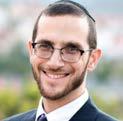
: God has caused me to forget all my toil and all my father’s house. (Bereshit 43:5). In contrast, although Moshe was born in Egypt and raised in Pharaoh’s palace he goes out of his way to seek his brothers - םָתֹלְבִסְּב
Moshe matured and went out to his brothers to witness their suffering (Shemot 2: 11). During his leadership, Yosef did not fathom the dire future that was to befall his brethren. He did prepare for the seven years of famine but did not see any darkness beyond those tough years. Yosef believed that his brothers could build a strong Jewish community in Goshen and thrive during their years in exile. As a people we can lead and contribute to society. Moshe encountered a different atmosphere, one of slavery and hatred towards the Jewish people. Moshe understood that the Jewish people had to exit Egypt and create their own homeland in Israel in order to survive.
Yaakov’s Fear of Exile
Yaakov hesitated while descending down to Egypt. Yaakov who himself had previously gone into exile to find a wife and to encounter Lavan understood that once in
1
At the end of his life, despite his fame and connection to Egypt Yosef desires to return to Israel and to be buried there like his forefathers.
26 TORAH TIDBITS 1498 / VAYIGASH 5783
RABBI SHALOM
Rav Kehilla, Nofei HaShemesh Maggid Shiur, Daf Yomi, OU.org Senior Ra"M, Kerem B'Yavneh
ROSNER
ַּיַו ויָחֶא־לֶא א ֵצֵּיַו הֶׁשמ
ת ֵאְו י ִלָמֲע־לָּכ
אְר
לַּדְגִּיַו
exile things don’t always end well. There may be temporary reprieve, but in the long term it will lead to assimilation, and we will be turned into scapegoats blamed for all of our hosting nation’s problems. Hashem had to appear to Yaakov and ensure him that it was the correct move for Yaakov to go to Mitzrayim at this juncture. ־לַא ...הֹלָע־םַג
more about patient self-control than physical might. It is found in the Talmudic tractate Kiddushin 40a, where the tale is told about a certain Rabbi Zadok, who resists the attempts of a particularly powerful noblewoman to lead him astray. He exerts moral strength, and to him the Talmud applies the following biblical verse: "Bless the Lord, O His angels, mighty creatures who do His bidding, ever obedient to His bidding. Bless the Lord, all His hosts, His servants who do His will." (Psalms 103:20-21)
Do not be afraid of going down to Egypt, for there I will make you into a great nation. I will go down with you to Egypt, and I will also bring you up…(Bereshit 46:3-4).
Exclusive!
www.angelrealty.co.il

For Sale in The Village, Zayit, Eftat Stunning 210m 8 room cottage, 2 private parking spots, central A/C. 4,800,000 NIS
For Sale in Dagan, Efrat Stunning 8 room cottage, middle unit. 3 floors, 230m. 5,250,000 NIS
Rehavia-Talbieh on quiet Radak
Beautiful, spacious 4 room luxury unit, 2.5 baths, 2 oor, Shabbat elevator, large succa terrace, storage + covered parking.
For Sale in Gefen, Efrat Beautiful 5 room duplex garden 2,850,000 NIS For Sale in Dagan, Efrat 5 room garden apt. 120 meters 2,990,000 NIS
Bnei Yosef
Isaac's way recognizes the necessity for great patience and forbearance. If we adopt Isaac's way, we must be prepared for a lengthy process before our challenges are resolved. In the words of Rabbi Abraham Isaac Kook, words which have been memorialized in a popular song, "An eternal people does not fear the long and arduous path."
May the Torah learned from this issue of TT be in loving memory and נ"על our dear parents whose yahrtzeits are in Kislev Doris Weinberger a"h ולסכ 'ד -ה"ע המלש לאקזחי תב האל הרובד

Throughout history there are “bnei Yosef”, descendants of Yosef, who view being in exile as a place where Judaism can thrive. Where one can accumulate wealth while maintaining their religion. Yet, they fail to recognize how history repeats itself and that being in exile is not meant as the ideal destination. Yosef himself sought to keep his brothers isolated in Goshen, but the distance did not suffice. It did not take long until Jews lived among their Egyptian neighbors, so much so that God had to pass over those homes during the plague of the firstborn.
For Sale in Olive Project, Zayit, Efrat Gorgeous 4 room apt. 120m. 2,850,000 NIS For sale in Zayit, Efrat 6 room duplex apt. 2,850,000 NIS Contact Gabi for more info 0524588716
SHELLY LANDAU PROPERTIES LTD & EVA AVIAD REALTY bayitsheli@gmail.com www.aviadrealty.com 052-385-9944 • 054-499-9043

Max Weinberger z”l ולסכ ז"כ -ל"ז בד ןב ךלמילא
Greatly missed by their children, grandchildren and great grandchildren Rav Aryeh and Dvora Weinberger Bernie and Leah Weinberger Menachem and Hannah Katten
Patience is necessary for those who follow Isaac's way. But a wise woman taught us that patience is but another name for hope. That woman was Jane Austen, who put these words into the mouth of one of the characters in her great novel, Sense and Sensibility: "Know your own happiness. You want nothing but patience—or give it a more fascinating name: call it hope."
In observance of the Shloshim of our friend Yehuda Leib Berren z"l Rav Menachem Weinberg will give a shiur in his memory "Heroic Joy" Monday evening, 23 November/ 8 Kislev 7:30pm
Zoom Meeting: 853 8980 1519 Password: Yehuda
We need to learn from Moshe’s experience. To recognize that residing in a foreign land should never be viewed as our final destination. For thousands of years our nation has been tossed around several continents and during our lifetime we have been blessed with the ability to once again return to our true homeland. May we merit being able to take part in the rebuilding of Eretz Yisrael and witness a geula shlema bemherah b’yamenu!
OU ISRAEL CENTER 27
ָךְלַעַֽא י ִכֹנָֽאְו הָמְי ַרְצִמ ָךְּמִע ד ֵרֵא י ִכֹנָֽא :םָֽׁש ָךְמיִֽׂשֲא לֹו דָּג יֹוגְל־יִּֽכ הָמְיַרְצִמ ה ָדְרֵֽמ אָריִּת
OU ISRAEL CENTER 15
SEALING SERVICES
SEALING SERVICES AND ROOFING
SMILES
Special Speech
“I am Yosef! Is my father still alive?” In perhaps the most dramatic moment in Chumash Bereisheet, Yosef Hatzadik reveals himself to his brothers. To prove his identity he states, “Vehinei einechem ro’ot ve’einei achi Binyamin ki pi hamedaber aleichem –You and my brother Binyamin can see with your own eyes that I myself am speaking to you.” (Bereisheet 445;12) It seems that Yosef was highlighting his speech as a true indication that he was their brother. How was this the ultimate confirmation?
Rashi, in fact, understands that Yosef spoke to his brothers in lashon hakodesh, proving that he was from their country. Yet, Ramban challenges this assumption, since Canaan was a bordering country and many people knew their language. In particular, it would be expected that the ruler of a neighboring country would know the surrounding languages. Therefore, Targum
Faculty, OU Israel Center
Onkelos understands Yosef as saying, “I am speaking to you in your language.” Meaning, in a manner of speech that is consistent with the household of Yaakov Avinu.
Rabbi Yekutiel Weiss, in Ziv Hachochmah expounds on the idea of the Targum. Yosef Hatzadik’s proof, he says, was not in the mere language of his words, rather, it was in the way he spoke to them - with softness and holiness, as befitting a child of Yaakov Avinu.
The Beis Halevi shares a powerful insight that expresses the caliber of Yaakov Avinu’s manner of speaking. When Yaakov approached his father to receive the brachot, Yitzchak Avinu felt Yaakov’s arms and said, “the voice is the voice of Yaakov, and the hands are the hands of Esav.” Why did this convince Yitzchak when it seemed to be a contradictory message? Rather, explains the Beis Halevi, Eisav was afraid that Yaakov would steal the brachot, and thus expected Yaakov to not only change his dress, but also his manner of speech,
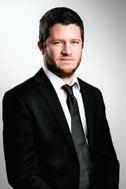
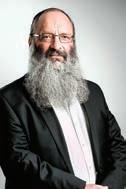
28 TORAH TIDBITS 1498 / VAYIGASH 5783
REBBETZIN SHIRA
to speak like Eisav. Therefore, when his son came to be blessed and spoke not like Eisav but like Yaakov, Yitzchak assumed that it was Eisav. In truth, Yaakov Avinu was unable to change his manner of speech and could not pretend to speak like Eisav. Yaakov Avinu could only express himself with refinement, saying, “yakum na avi.”

We now have a deeper understanding of Yosef’s demeanor when he first meets his brothers. “Vayidaber itam kashot – and he spoke with them harshly.” (Bereisheet 42;7) Rashi notes that this was his way of deceiving them. By speaking in a style that was decidedly foreign to the way one spoke in Yaakov Avinu’s home, they would never imagine that this could be their brother. Now, when Yosef reveals himself, he returns to the soft spoken, gentle manner of speech with which they were raised.
The Maharal likens speech to the fruit of a tree. Just as one can tell the type of tree from its fruit, one is able to tell the nature of a person from his speech. Rav Dessler adds that the refinement in one’s speech emanates from a deeper part of his soul. Rav Yekutiel Zalman Weiss points out in Ziv Hachochmah, that one who wants to refine himself should work on his speech, since one’s outer actions affect one’s inner mindset. From this monumental encounter, we learn to appreciate the relationship between spoken word and one’s inner character.

OU ISRAEL CENTER 29

30 TORAH TIDBITS 1498 / VAYIGASH 5783

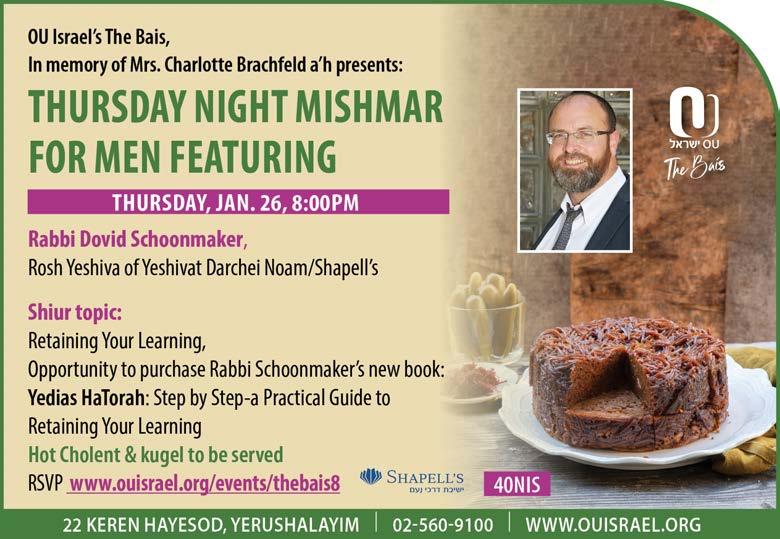
OU ISRAEL CENTER 31
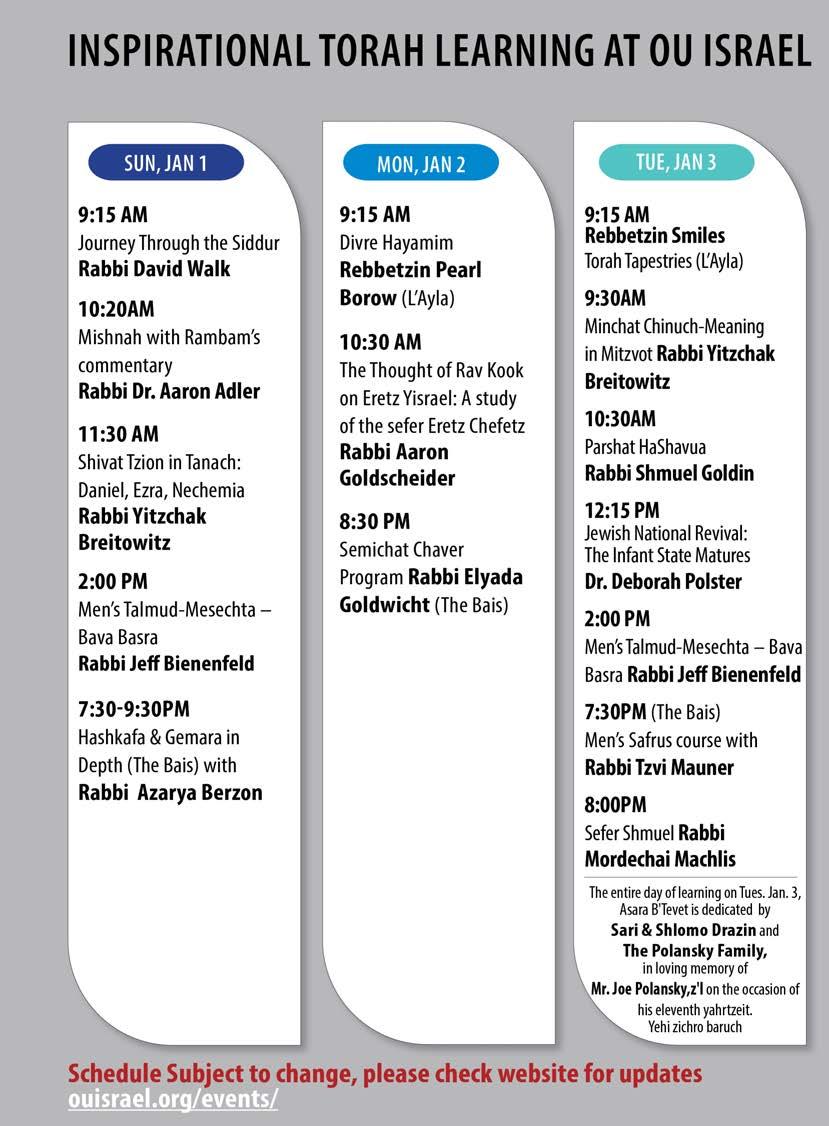
32 TORAH TIDBITS 1498 / VAYIGASH 5783
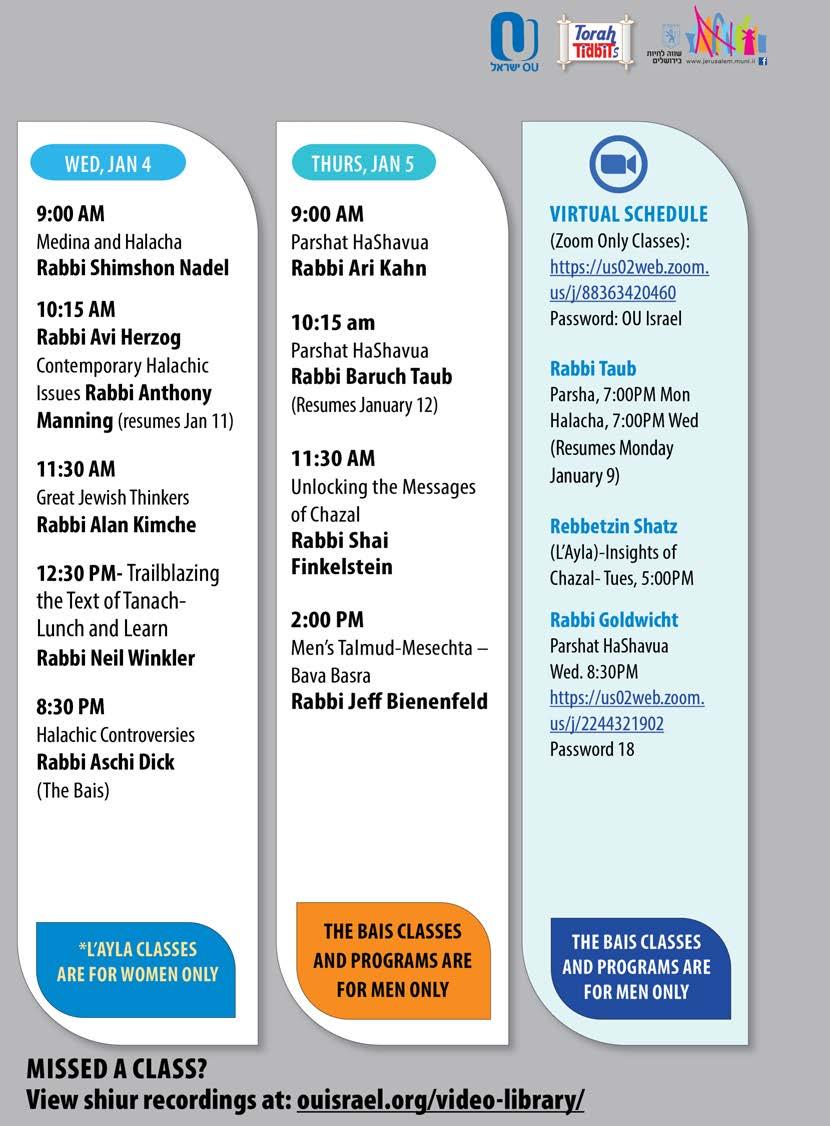
OU ISRAEL CENTER 33


34 TORAH TIDBITS 1498 / VAYIGASH 5783
SHIUR SPONSORS

Tuesday, December 27th - Rabbi Goldin’s shiur was sponsored by Shimshon Granek in loving memory of his father ל”ז קינארג בקעי ןב באז whose yahrzeit was on Tuesday 3 Tevet, December 27 Thursday, December 29th - Rabbi Finkelstein’s shiur is sponsored by םולבנזור לאומש in memory of ל”ז ןועמש םהרבא ןב רכששי - Yahrzeit תבט א”י
Sunday, January 1 (3 Tevet) all learning at the OU Israel Center is sponsored in memory of Arlene Sevrinsky a”hה”ע יכדרמ תב הדיירפ ליגיבא on her first yahrzeit by the Sevrinsky Family
Monday, January 2nd - Rebbetzin Pearl Borow’s shiur is sponsored by Chana Karp in memory of her father on his 27th yahrzeit, 6 Tevet - ל”ז קחצי םהרבא ןב השמ תמשנ יוליעל
Rabbi Goldscheider’s shiur has been sponsored for the 2023 Academic Year ל’’ז המלש ןב בוט םשו ה’’ע םהרבא תב םירמ תמשנ וליעל
Rebbetzin Shira Smiles shiur is sponsored for the 2023 academic year by Dr. & Mrs. Menachem Marcus in memory of their parents, Rose & Dr. Emanuel Marcus z”lל”ז סוקרמ השמ ןב יכדרמו ריאמ ףסוי תב לזייר Rosi and Ernest Strauss z”lל”ז סוארטש דוד ןב לאינדו םהרבא תב דומיל
Rabbi Breitowitz’s Tuesday Shiur - Minchat Chinuch is sponsored for the academic year 2023 by Rabbi Refoel & Sharon Auman in memory of their parents Edith & Reiner Auman z”l ד”יה לאפר תב ה”ע רתסאו ל”ז קודצ ןב הנוי and their son Rabbi Shmuel Eliyahu Auman z”l י”נ לאפר ברה ןב ל”ז והילא לאומש ברה
Rabbi Goldin’s shiur is sponsored for the 2023 academic year by Dr. & Mrs. Menachem Marcus in memory of beloved aunts Irma Haas a”h and Hilde Myer a”h
Rabbi Manning’s shiur has been sponsored for the 2023 academic year ל’’ז ןמלק ןב גילזו ה’’ע תידנרב תב הנרב תמשנ יוליעל
Rabbi Taub’s weekly Thursday Parshat HaShavua Shiur is sponsored by The Jewish Legacy Foundation
OU ISRAEL CENTER 35 PRI HADASH WOMEN'S WRITING WORKSHOP AT THE OU ISRAEL CENTER Monday mornings 10.30-12.30 For more details, call Ruth 02-628-7359 or Judy 054-569-0410 The OU Israel Center is looking for a FULL TIME EXPERIENCED MAINTENANCE WORKER 1. Must be dependable, efficient and possess a solid work ethic 2. Must be able to handle necessary maintenance and repairs including basic electricity and plumbing issues 3. Must be able to handle the physical demands of the job 4. At least one year experience in building maintenance 5. Valid driver’s license a plus To apply, please contact David Katz at 02-5609123 or dkatz@ouisrael.org DOROT - The OU Women's Intergenerational Choir Director Hadassah Jacob 052-384-7230 Monday Evenings 7:00 - 9:00pm
GET FIT WHILE YOU SIT: Exercise for ladies Join us on Sundays
12:45-1:30pm at the OU Israel Center Sura Faecher 0504153239
MISCHEL
Be the Guarantee
Rav Nosson Tzvi Finkel, z’tl, was renowned for his extraordinary drive and hasmada (diligence in learning), sterling character, warmth, and self-sacrifice. A personable and approachable gadol b’Yisrael, Rav Nosson Tzvi worked tirelessly at the helm of of the Mir Yeshivah in Yerushalayim, dedicating his life to harbatzas haTorah, the advancement and spread of Torah study. Through his efforts, the Yeshivah grew exponentially and became the largest center of Torah in the world.
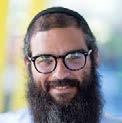
Howard Schultz was the longtime chairman and chief global strategist of Starbucks Coffee Company. Upon receiving an honorary degree from Columbia Business School, he shared the following anecdote.
I once went to Me’ah She’arim with a group of businessmen, where we were given an audience with Rabbi Finkel. What we did not know was that he had severe Parkinson’s disease. When his office door opened, we saw him sit at the head of the table, his hands trembling. Naturally, our inclination was to look away and not embarrass him.
Rabbi Finkel asked, “Who can tell me what the lesson of the Holocaust is?” We were all looking away until we heard a
heavy bang on the table: “Gentlemen, look at me, and look at me right now.” His speech affliction was even worse than his physical one. “I have only a few minutes for you because I know you’re all ‘busy American businessmen’. Who can tell me what the lesson of the Holocaust is?”
He called on one guy, who sheepishly offered, “We will never, ever forget…?” The rabbi dismisses him. All of us were practically under the table, hoping not to be called on. He gestured at another guy, who had a fantastic answer: “We will never, ever again be a victim or bystander.”
“You guys don’t get it,” said the rabbi. Okay, let me tell you. As you know, people were transported in the most inhumane way. On a corral with no light, no bathroom and in freezing cold, they arrived at the death camps. Upon disembarking, the men were separated from women, mothers from daughters, and fathers from sons. They were then marched off to their bunkers.
“As they entered the bunkers, only one in six was given a blanket. The person who received a blanket, as he laid down on the hard, cold bunk, he had to decide: ‘Am I going to spread part of the blanket over the five other people who did not get one, or am I going to pull it over myself to stave off freezing?’”
“At this moment, concluded Rabbi Finkel, “we learned the power of the human
36 TORAH TIDBITS 1498 / VAYIGASH 5783
RABBI
Mashpiah, OU-NCSY Executive Director, Camp HASC Author of Baderech: Along the Path of Teshuva (Mosaica 2021)
JUDAH
spirit — we spread the blanket over the five others.”
With that, he effortfully stood up, and with a whisper that was more powerful than a shout, the Rosh Yeshivah charged us with a mission: “Take your blanket! Take it back to America and spread it over five other people.”
Following the sale of Yosef, Yehudah was looking desperately for a redemption, a tikun for not sacrificing himself to keep his brother safe. Years later, in our sedra, Yehudah returns to his father in Eretz Yisrael, steps up, and pleads to be allowed to bring Binyamin down to Egypt. This time Yehuda puts himself on the line to guarantee the wellbeing of his brother….
in it, he may make the brachos again in order to be motzi others. In other words, one is ‘obligated’ to ensure that others have the opportunity to fulfill the mitzvah as well. With this intent, halachic sources cite the Talmud (Shevuos 39a): Kol Yisrael areivim zeh ba-zeh, “All of Israel are guarantors for one another.” Until every Jew has fulfilled his obligation, none of us has.
An act of areivus is not really an act of chesed or even altruism. In fact, it transcends the notion of ‘giving to others’. A deeper manifestation of “V’ahavta l’reyacha kamocha”, such an act of mutual responsibility is made in ‘holy self-interest’, and in the interest of the klal, the collective. Unless you have fulfilled your obligation and have what you need spiritually and materially, I am incomplete — and Klal Yisrael is incomplete.
I will be the guarantee for him; from my hand you can demand him. If I do not bring him to you and stand him up before you, I will have sinned against you forever. (43:8-9)
For your servant has assumed responsibility for the boy from my father… (44:32)
Areyvus, the mutual responsibility and interdependence of all Jews, expresses our identity as family and our obligation to one another. An areiv is a legal guarantor or co-signer for a loan; if one is unable to pay, the areiv is obligated to step in to cover the debt.
There are mitzvos such as kidush and mikra Megillah, in which even when one has already fulfilled his personal obligation
May we be blessed to express the greatness of the Jewish People and the human spirit: areivus zeh ba-zeh. May we ‘cover’ for one another, share our blessings, make sure each person is warm, and celebrate our ultimate ‘completeness’ soon and in our days.
On HaPalmach - great 4 room apartment, 92m plus large garden in use, exclusive. Asking 4.95 million NIS In a good area in the Moshava2 apartments (can be connected), 1st floor, 170m, renovated, Sukkah porch, parking Palmach - 4 rooms, garden apt. about 100m asking 4.95million NIS
Smadar 050-3114040 // 02-642-4329 smadi_bida@walla.co.il

OU ISRAEL CENTER 37
יִכֹנָא :םיִמָּיַה־לָּכ
יִּתִא רַעַּנַה הָחְלִׁש Send the boy in my care ָךיֶלֵא ויִתֹאיִבֲה אֹל־םִא ּוּנֶׁשְקַבְּת יִדָּיִמ ּוּנֶבְרֶעֶא
ָךְל יִתאָטָחְו ָךיֶנָפְל ויִּתְגַּצִהְו
…יִבָא םִעֵמ רַעַּנַה־תֶא בַרָע ָךְּדְבַע יִּכ
SIMCHAT SHMUEL
BY RABBI SAM SHOR Program Director, OU Israel Center
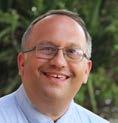
Our Sedra this week, Parshat Vayigash features the climactic moment of Yosef’s revealing his true identity to his brothers. These two pesukim paint the picture of that great revelation, as the brothers are shocked to learn that this nobleman standing before them, is their long-lost brother.
compensation at their expense.
Despite all that had transpired between Yosef and his brothers, despite the many years which have passed, Yosef reassures his brothers that he is indeed Yosef, and though he has risen to a position of influence and power, he remains acheichem -”your brother.”
Yosef said to his brothers, “I am Yosef. Is my father still alive?” But his brothers could not answer him,as they were caught off guard on account of him. Then Yosef said to his brothers, “Come forward to me.” And when they came forward, he said, “I am your brother Yosef, who you sold into Egypt...”
The Ohr HaChayim HaKadosh points out that Yosef twice told his brothers “Ani Yosef,” and the second time he added the word “acheichem,” “your brother” (Bereisheet 45:3- 4). The Ohr HaChayim explains that Yosef repeated this phrase twice, because while the brothers were embarrassed at the fact that they had sold Yosef, they did not truly believe that this person was their brother. Therefore, Yosef addressed both concerns by telling them that he was indeed Yosef, and despite the fact that they sold him into slavery, he always loved them and would deal with them as a loving brother, and not seek any vengeance or
Inevitably within every family dynamic, both immediate families or even within the collective family of Am Yisrael, there are periods of conflict and tension within the dynamic of our families. There may even be extended periods of dissonance and distance. Yosef HaTzadik, with this one seemingly superfluous word- achechem, teaches us a profound lesson in bringing those conflicts to conclusion- by recognizing that though we may have wronged one another or even caused trauma or harm to one another, the key to reconciliation is to never lose sight of the spirit of brotherhood.
Perhaps, now more than ever, this powerful message of brotherhood and reconciliation is so incredibly relevant. The key to building a better, brighter tomorrow is the ability to let go of past claims, grudges and conflict, and embrace an era of unity, empathy and compassion for one another.
Yehi Ratzon, may this beautiful insight of the Ohr HaChaim HaKadosh, serve as the impetus to indeed bring about that era of unity, brotherhood and reconciliation to Klal Yisrael and to the entire world.
38 TORAH TIDBITS 1498 / VAYIGASH 5783
ּולְכָי־אֹֽלְו יָח י ִבָא דֹו עַה ףֵסֹוי י ִנֲא ויָחֶא־לֶא ףֵסֹוי רֶמא ֹּיַו ויָחֶא־לֶא ף ֵסֹוי רֶמא ֹּיו :ויָֽנָּפִמ ּולֲהְבִנ יִּכ ֹו תֹא תֹונֲעַל ויָחֶא יִתֹא ם ֶּתְרַכְמ־רֶׁשֲא ם ֶכיִחֲא ף ֵסֹוי יִנֲא רֶמאֹּיַו ּוׁשָּגִּיַו י ַלֵא א ָנ־ּוׁשְּג ׃הָמְיָֽרְצִמ






























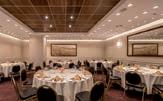

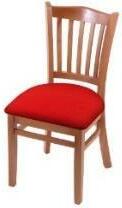


OU ISRAEL CENTER 39 Your perfect vacation GILTOURS Refund Guaranteed! In case of sickness or quarantine Contact our representatives to receive fantastic pricing. Tel. 972-3-6166888 Email: izk@giltours.co.il Join us for an uplifting Pesach at the luxurious Ramada Jerusalem Hotel • Luxurious and spacious rooms • Festive gourmet meals • Activities for the entire family every day of Chol Hamoed • Health club that includes: heated indoor pool with separate hours, sauna and Jacuzzi. • Shiurim during Chag and Chol Hamoed for English-Speakers • Most important - at an attractive price! The best deal! Mehadrin Rabbanut Yerushalayim and non Gebrochts Shemura Matza Shmitta Lechumra U Israel’s LEADING and MOST TRUSTED furniture repair company Glue with us once and you’ll stick with us forever • REGLUING/STRENGTHENING for all your loose & shaky furniture • EXPERT SOFA FRAME & RECLINER REPAIR • SEAT CORE REPLACEMENT - Remove broken wood seat and replace with much stronger wood • CANE SEAT/BACK REPLACEMENT • FURNITURE MARKERS - To help you make those small scratches disappear • LEG TIPS - For quiet chair movement (your downstairs neighbor will thank you!) • TIRED OF HAVING TO CROWD YOUR GUESTS AROUND MULTIPLE TABLES?? Call us to hear about our heavy-duty table slides to more than double (or even triple!) the current length of your table. • INSURANCE QUOTES - We handle hundreds of freight damage claims from overseas as well as local moves. Website: www.thefurnituredoctor.co.il Email: office@thefurnituredoctor.co.il Phone: 02-999-2418 WhatsApp: 058 787 3755
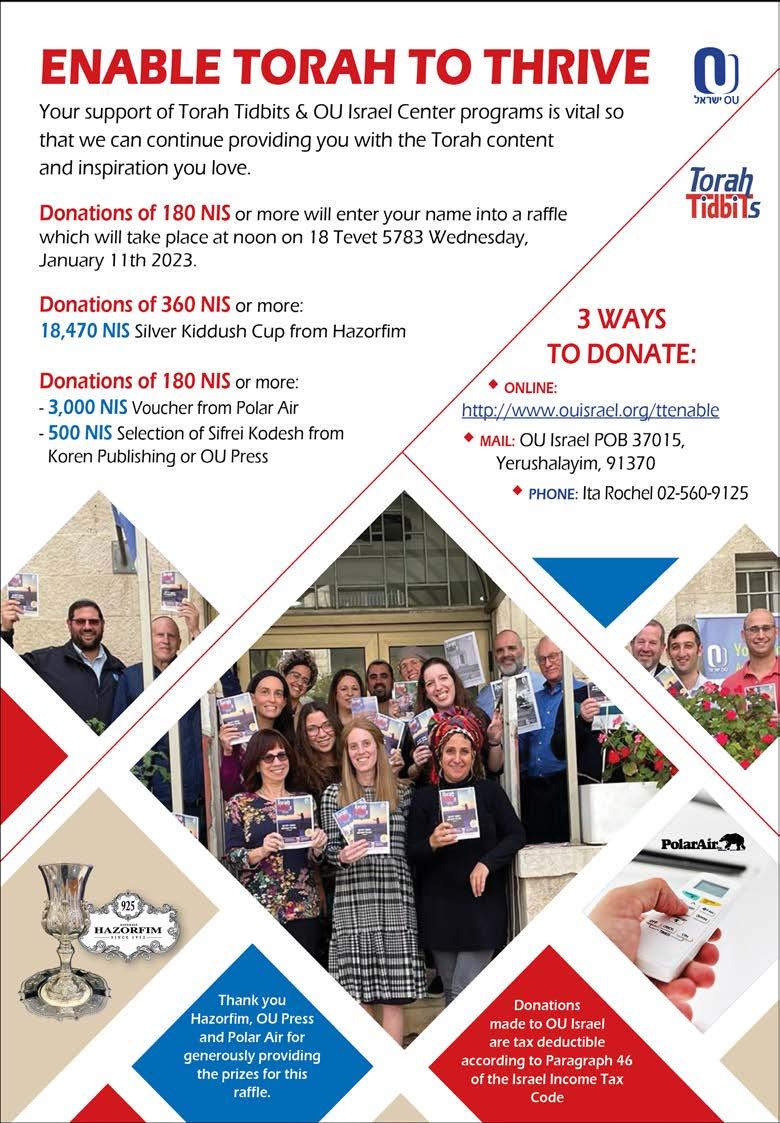
40 TORAH TIDBITS 1498 / VAYIGASH 5783


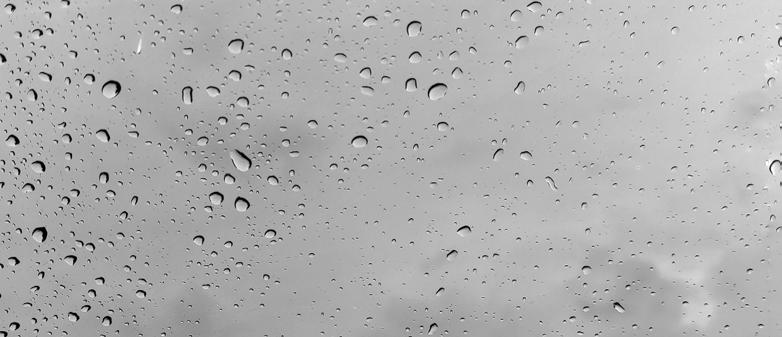
OU ISRAEL CENTER 41 This week: Funds urgently needed for post-operation medicines not covered by Kupat Cholim. • Checks: Make out to “Yesh Ezra” Send to: Yesh Ezra, POB 36156, Romema, Jerusalem • Bank Transfer: Bank Mercantile (17), Branch 642, A/C 79747843, Yesh Ezra • Credit card by phone: Sara at 077-820-0196 (Sun-Thu. 10:00am-3:00pm) • Website: www.yeshezra.org Click on “Donate Now” Inquiries: Menachem Persoff 050-570-1067 menpmp@gmail.com NACHI REALTY 054-461-3943 New building under construction in a great location. 3 rooms only 2.47m shekel. 4 rooms available as well from 3.27m NIS 4 rooms on Chizkiyahu HaMelech in Katamon, 2nd floor, beautifully renovated, 2 full bathrooms. 3.49m NIS MAXI BoX 053-7272-815 ד״סב Storage Your place for extra space 050-906-6713 | www.zacai-banav.co.il For services in English - Noah Kahn: 058-655-0453 | Zacai.banav@gmail.com Israel’s leading waterproofing company Warranty on every job Jerusalem, Merkaz and surrounding areas Balconies, Roofs, Walls, Garages, and More Waterproofing LTD. SINCE 1954
GEULAS YISRAEL
BY RABBI MOSHE TARAGIN R am, Yeshivat Har Etzion
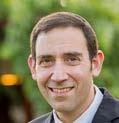
Gateways to Exile
Our Avot were aware that, at some point, they would endure an arduous exile. This fate had been sentenced at the dawn of Jewish history during the brit bein habetarim when Avraham was delivered a historical roadmap. They didn’t know which “strange land” they would be exiled to. Though they knew that the overall process would last four hundred years, they didn’t know how many of those years would be spent as foreigners and how many years would be spent as slaves. They knew the general course, but not the details.
For this reason, when Yosef invited the family to join him in Egypt, Ya’akov remained wary. Though a trip to the wellstocked cupboards of Egypt could provide famine relief, Ya’akov struggled with the idea of leaving his Homeland yet again. Was this the launch of the expected exile of just an optical illusion? Ya’akov sojourns in Be’er Sheva where, in a nighttime dream, Hashem instructs him to journey to Egypt and follow the call of Jewish history. The “exile” component of the four-hundred year odyssey has begun.
Little did Ya’akov realize how fortunate he was to travel to Egypt on Yosef’s wagons and to receive a hero’s welcome as the
father of the man who rescued Egypt from starvation. Yosef wasn’t as fortunate as his father. He was dragged down to Egypt in chains. Hashgacha determined that Ya’akov stride comfortably to an Egyptian exile rather than be delivered through slave traders.
As the gemara in Shabbat (89) comments םירצמל דריל וניבא בקעי היה יואר :ןנחוי יבר רמא ,ביתכד ול המרג ותוכזש אלא ,לזרב לש תואלשלשב -הבהא תותובעב םכשמא םדא ילבחב‘ Ya’akov could have been hauled down to Egypt in chains, as a slave. Instead, unaware of his good fortune, he benefited from a smooth landing and a red carpet.
Two Entry Points
We entered our first exile through two very different gateways. Yosef was shackled, drawn, and ultimately tossed into prison while Ya’akov arrived securely and easily. These two journeys carved two different gateways to Exile throughout Jewish history. In our travels across time and history, we would sometimes arrive in foreign countries as refugees or even as slaves. Vast numbers of Jewish slaves, by some estimates even 60,000, were shipped to Rome to construct the Colosseum. About 1400 years later, close to a half a million Jews streamed across Europe fleeing the Spanish Inquisition. These Jews followed the Yosef gateway to exile.
At other points in history Jews arrived through the Ya’akov gateway. Between the
42 TORAH TIDBITS 1498 / VAYIGASH 5783
last two decades of the nineteenth century and the first quarter of the twentieth century, an estimated 2.8 million European Jews immigrated to the United States. Though some came fleeing pogroms in Eastern Europe, many arrived in search of new opportunities in a world of religious freedom.
Just as Ya’akov was unaware of his good fortune, often Jews migrated just at the “right time” similarly unaware of the importance of timing. Had Eastern European Jews not emigrated to the USA, they would have added to the already tragic numbers of Holocaust victims. Similarly, in the 15th and 16th century, Jews migrated to Poland from Western Europe barely avoiding the horrific brutality of the Thirty Years War which engulfed Western Europe and Germany during the first half of the
16th century. Had the Jews remained in Germany and Bohemia they would have suffered horrific brutality during these endless years of grisly violence. Though Polish Jewry would ultimately suffer devastation during the Khmelnytsky uprising in the middle of the 17th century, their migration two centuries earlier, spared them the horrors and massacres of the great European wars of the 16th century.
Often, we migrate through exile passing through the Ya’akov gateway, unaware that Hashem supervises our journey, sometimes coordinating it to help us avoid additional suffering.
Two Traps
Though Ya’akov’s descent was more cozy than Yosef’s, it posed two distinct challenges which Yosef’s passage avoids. Firstly, when Jews arrive peacefully and

OU ISRAEL CENTER 43 A new project in Jerusalem! No apartment purchase or purchase taxes involved! Guaranteed returns 27 year track record Strong securities 3 year investment program Very low risk 3 year Call our investment expert Moshe Ehrlich today to hear about our latest investment opportunities! Invest@bemuna.co.il www.bemuna.co.il 050-551-3221 הנומאב ריע הירומה A safe alternative for your investment funds! Invest with The stock market is plunging? Looking for a stable and safe alternative for your funds? Invest with Bemuma today, and receive a guaranteed return!
comfortably, we settle in, establish communities, and often attain financial success. This prosperity tends to incite resentment and jealousy from our gentile hosts, especially during times of domestic crisis or economic downturn.
The Torah never attributes Egyptian hatred of the Jews to our relative financial success, but it is easy to imagine this playing a role in their hostile attitude toward us, and their eventual enslavement of us. The end of parshat Vayigash documents the slow but steady destabilization of the Egyptian financial system, as citizens sold off their land and ultimately, their freedom to receive food from Yosef for survival. Meanwhile, the Jews of Goshen were given a free ride by their brother and thrived during the recession. Years later, Pharo could easily point to this economic disparity while fomenting hatred against the wealthy foreigners.
In the 17th century, during the Khmelnitsky uprising, Ukrainian peasants viewed the Jews as complicit in the tyrannical Polish system of financial discrimination and oppression, and somewhere between 100,00 and 500,000 Jews were murdered by these revolting farmers. Ironically, whenever we arrived through the Yosef gateway, as meager refugees, we aroused less hatred and less abhorrence.
Turning Back
A second complication of walking through the Ya’akov gateway is the difficulty of turning back. The final pasuk of parshat Vayigash portrays Jewish settlement in Egypt as anchored and implanted - וב וזחאיו . The more we became culturally entrenched the more blinded we were to
Jewish history. We forgot our Homeland back in Israel and made peace with our new reality and our new surroundings.
To underscore this closing of our redemptive imagination, the Torah abuts this last pasuk of Vayigash with the first pasuk of Vayechi, without leaving the nine empty spaces which typically separate between parshiyot. The text between Vayigash and Vayechi is “closed”, and this textual closure parallels the shuttering of our redemptive vision, in the comfortable world of Goshen.
Had we been less immersed in Egypt and more aligned with our Homeland, would our slavery have been shorter or less fierce? Had we been more keenly aware that Egypt wasn’t our natural homeland would we have resisted some of the Egyptian measures? Would defiant redemptive vision have prevented some of the Egyptian? We don’t know the answer to this question, but the Torah indicts us for being too comfortable in the favorable city of Goshen.
Ironically, when we enter exile through the gates of Yosef, it is easier to maintain our redemptive vision and easier to recall that we don’t belong in a foreign land. When we enter exile too peacefully, we often become too settled and it sometimes takes a violent event to shake us from our historical slumber. The Spanish inquisition brought an abrupt end to a golden era of Spanish Jewry which had lasted close to 700 years. Sadly, the triumphant formation of the State of Israel in 1948 brought an sudden end to thousands of years of Jewish life in Arabic lands, life which is just now showing possible signs of a slight renaissance.
Children First Ya’akov only emigrated to Egypt because
44 TORAH TIDBITS 1498 / VAYIGASH 5783
his son had been drawn down before him. The midrash compares this to a calf which is directed to a location so that the mother cow will follow. Ironically, this dynamic of a parent following a child set a different historical pattern for redemption.



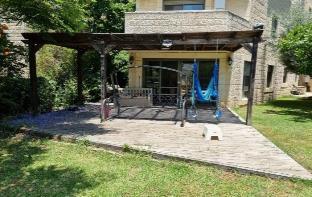

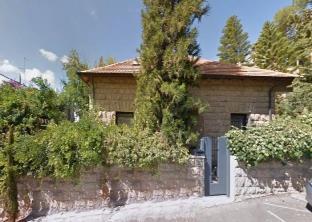




Typically, children typically follow their parent’s migratory decisions, joining their parents in their relocation. Ironically, our return to our Homeland has often been spearheaded by children who are first to arrive home and join the Land of history. It is often more difficult for parents who have grown accustomed to local cultures to move to Israel. Children are often less connected to their past cultures and find it easier to return home on aliyah. Often a child’s aliyah, at some point, triggers their parents’ Aliyah relocation to Israel.

By following Yosef into exile, Ya’akov was the first parent to follow his child’s voyage into a different land. Currently, parents are following their children back home. Malachi prophesies that when Eliyahu arrives, the hearts of the fathers will turn to the will of the children. It is happening before our very eyes. Geulah has inverted history. Ya’akov followed Yosef to exile. In the redemptive era parents are following children back home.



OU ISRAEL CENTER 45
Amazing Penthouse #052-6984466 9 R | 6 BR | 340 SQM | 6 B | 2 floors | 2 terraces with views | 4 parking spaces | 2 storage units In the heart of Old Katamon #052-2670008 5 R | 150 SQM | elevator | parking | balcony spacious & bright | 6,900,000 NIS Arnona #050-7225694 8 R | garden | balcony | renovated | accessible spacious living room | separate unit Gilinski Real Estate gilinski.co.il
GOLDSCHEIDER
Recognizing the Land’s Extraordinary Force
“In every matter of sanctity, which is also true in matters of the mundane, there exists multiple levels [of quality], “And each person is singed by the chupa of his associate.” Indeed, the quality of light and beauty found in the holiness in Eretz Yisrael for talmidei chachamim who seek Hashem, is simply not to be found outside of Israel. And this [truth] I know with certainty, commensurate with my small stature. “ (Eretz Chefetz 2:4)
Rav Kook borrows a phrase from the Gemara (Bava Batra 75a). The context of this aphorism is a description of every individual in the next world standing in judgment before the Creator. At that moment of chastisement every person will clearly see the contrast between his behavior and the conduct of others and feel the pain of being ‘singed’ - recognizing how much more he could have accomplished with their time on earth.
In the passage from Eretz Chefetz above, Rav Kook proposes that every individual has an opportunity for a personal encounter with the sanctity of the Land. One must cherish
this encounter. The benefit one receives from the Land is contingent on a person’s engagement and intimate connection.
With overflowing humility, Rav Kook notes his own spiritual awakening as a scholar and mystic who has settled in the Land. The more one invests into the encounter with the holiness embedded in the Land, the deeper and more intense is the experience.
In Rabbi Chaim Shmuelevitz’s classic collection of ethical lessons, he devotes an electrifying talk to the holiness of the Land of Israel and the merit of those who study Torah in the Land (Sichot Mussar maamar 90, “Maalat Eretz Yisrael”).
After citing multiple examples of the dynamic spiritual influences the Land has on its residents he raises the question as to why so often do those living in the Land fail to feel uplifted or awakened spiritually? Does living in the Land really make a difference in one’s religious development?
Rabbi Chaim Shmuelevitz answers that it depends entirely on the mindset and intentions of the person. The midrash contrats Yosef’s yearning for the Land with, what appears to be, a more distant relationship with the Land displayed by Moshe. The great mussar teacher says that this lesson is one that we must also absorb regarding our longing for Eretz Yisrael. We are elevated by the Land’s holiness only when we recognize its extraordinary force and potential and
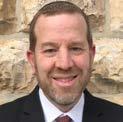
46 TORAH TIDBITS 1498 / VAYIGASH 5783
RABBI AARON
Editor, Torah Tidbits
are passionate towards its singular nature.

This idea is captured beautifully in a chassidic story about one of the few Rebbes to make aliyah who embarked on building a new life for himself in the Land of Israel.
“Rebbe Avraham Dov of Avritch, was unique among the Chassidic masters. He left his home and his followers to fulfill the dream of making aliyah and begin a new life in Israel. The rebbe moved to the city of Tzfat where he embarked on leading a new community and served as their rabbi and teacher.

One day, a stranger entered the courtyard near his home, and Rebbe Avraham Dov ran to greet him. The Chassidim watched this encounter. They couldn’t hear what they spoke of, but as soon as the stranger left, the Rebbe returned to his study and strangely did not emerge from his home for many days.
The Chassidim were puzzled: Who was that person? What did he and the Rebbe discuss? Why did the Rebbe lock himself in his study for many days? Their puzzlement grew when the Rebbe finally emerged and commanded his Chassidim to prepare the most amazing Tish, a festive meal at the Rebbe’s table.
The Chassidim did as they were told. They
GOOD DEAL!!! In New TALPIOT – Spacious 2 rooms, 50m, recent, Shabbat elevator, terrace, calm, store-room, parking 2000000 NIS - MENDEL 052-8980111
VERY GOOD INVESTMENT!! In Bustan BakaIn a beautiful boutique building –Large 2 room apartment, ground floor (0 steps), elevator, balcony, parking 2450000 NIS - MENDEL 052-8980111
TALPIOT HAYESHENA – In a new project, 4 rooms, 100m, elevator, balcony, occupancy in 2 years, from 3400000 NIS MICHAEL 052- 3202488
FOR RENT / for SALE!! In the heart of BAKA, in an Arab house and a pastoral street - Garden apartment 4.5 rooms, spacious, lots of storage space, partially furnished, garden, 60m) 5500000 / 8700 NISMICHAEL 052-3202488

OU ISRAEL CENTER 47
ORDER ONLINE AND GET THE PRODUCTS YOU PREFER DELIVERED STRAIGHT TO YOUR DOOR! ORDER TODAY AND ENJOY SUPERIOR QUALITY, SELECTION AND SERVICE! Use coupon code welcome2ftf and save 5% off your first order! www.FarmToFamily.co.il Netanel 050-344-6261 | Office 058-444-6260 American Service! Premium Mehadrin Produce American Products Specialty Items! Are you tired of shlepping your groceries home? All your Chanukah supplies!
ate and drank, sang and danced. But the whole time, all they really wanted to know was: Who was the stranger? What did he and the Rebbe discuss? Why did the Rebbe lock himself in his room for so long?

Finally, one of the Chassidim mustered up the courage to ask the Rebbe, “Why?”

The Rebbe silenced them and began: “Many years ago, while still in the town of Avritch, I would always sit for hours with anyone that came from Eretz Yisrael. I would question them about the Holy Land and what it was like to live there.

One day a charity collector came to town and we talked endlessly. When he stood to leave I begged him, ‘Please, tell me more!’
“He said to me, ‘I’ve told you everything.’
“But I insisted, ‘Tell me more!’
“He said to me, ‘What more can I tell you? When you stand at Me’arat HaMachpela along with the Patriarchs and Matriarchs in Hevron you will know.’ And he turned to leave.
“I begged him, ‘Please, tell me more!’
“He said, ‘What more can I tell you? When you stand at Kever Rachel, Rachel’s tomb,and cry with her, you will know.’ And again he turned to leave.
“I continued to beg, ‘Please, tell me more!’
“He said, ‘I’ve told you all I can. When you
























get there you will see for yourself, even the stones are precious stones. Even the stones are made of emeralds and rubies and diamonds!’ And with this he left.
“So you see,” the Rebbe turned to his Chassidim, “when I arrived, everything was exactly as he said it would be. Everything but the stones -- they were regular stones, they weren’t precious stones at all. I could never understand why he lied to me. The last thing he told me was not true!”
“So a number of days ago, he walked into the courtyard, and despite the passage of 20 years, I recognized him immediately. I ran to him and said, ‘Everything you told me was true, except the part about the stones! Why did you tell me that they were precious stones when they are not?!”
He looked at me and said with dismay and surprise: ‘What? They’re not? You don’t also see the jewels?’
“So I locked myself in my study and I began to cry. Every day I would cry and look out at the stones, hoping to see the jewels. Today, finally, while looking out of the window I realized that every stone was precious. Every stone was an emerald or a ruby or a diamond!” (The Light That Unites, p. 199-202)

48 TORAH TIDBITS 1498 / VAYIGASH 5783
OTHER OPTIONS AVAILABLE | RAMAT BEIT SHEMESH | JERUSALEM | ASHDOD | ASHKELON | TZFAT | RAANANA | TIBERIAS MISHKAFAYIM 5 ROOM – VIEWS 5 Rooms 4 Bedrooms Large Balcony Stunning Views , Redone Beautifully and so much more offers from 4,2 Million NIS www.israel-properties.com | Tel/WhatsApp IL +972 50 446 9515 | Office +972 2 568 6578 | toviyah@israel-properties.com GUIDING YOU EVERY STEP OF THE WAY HELPING YOU SECURE YOUR FUTURE IN ISRAEL WITH PROPERTY OWNERSHIP AND INVESTMENT NEVE SHAMIR 5 ROOM GARDEN Ready NOW Stunning – Upgrades 5 rooms Large Garden 100 m2 Storage and Parking AND so much more offers from 3,4 Million NIS HARMONY RETIRMENT VILLAGE RBSA New in Aleph- 3 rooms 2 Beds, large Balcony with all the amenities renovate to high standard offers from 2,99 Million NIS RAMAT BEIT SHEMESH GIMEL 3 rooms with options to 4 rooms , large balcony stunning views ideal investment property 2,100 000 NIS Hurry before Sold ACHZIV WALK TO BEACH Sea Views from your balcony walk to Beach ideal lock up and go Investment 4 Rooms 116 m2 large balcony in Naharia close to all 2,250,00 NIS NEVE SHAMIR DUPLEX PENTHOUSE Duplex Penthouse with Stunning Views 5 Rooms with 80 m2 Roof Rights 2 covered parking and Storage from 3.5 Million NIS Toviyah +972 50 446 9515- Debbie +972 58 322 9858 -Daniel +972 53 444 0928 -Lara +972 58 661 1968 - Yehudah +972 52 564 0130















OU ISRAEL CENTER 49 “TzviAir is a pleasure to work with and did an amazing job!” – Jamie Geller, Celebrity Chef AIR CONDITIONING SALES & SERVICE 02-628-8282 | tzviair.com
FROM THE VIRTUAL DESK OF THE OU VEBBE REBBE
RAV DANIEL MANN
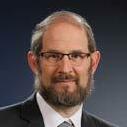
Rings, Watches, and Tefillin

Question: I wear a wedding ring and a watch on my left arm, and I do not like taking them off. Is it permitted to keep them on when I put on tefillin?
Answer: The mishna (Megilla 24b) criticizes those who place tefillin shel yad on their sleeves, for believing that since the Torah calls them an ot (sign), it should be visible to outsiders. We learn this pasuk as meaning that “it is an ot for you - and not for others” (Menachot 37b). Rashi (Megilla 24b) seems to say that the whole problem is that it should not be done primarily toward others. The Rosh (Shut 3:4), though, understands that, given that the tefillin shel yad do not require being exposed, they must be directly on the skin, like the garments of a kohen must be, thus forbidding a chatzitza (separation).
How broadly does chatzitza apply to tefillin? The Rashba (to Megilla 24b) raises the real possibility that it does not apply to a shel rosh or to the shel yad’s retzuot (straps) (Shut Harashba I, 827). However, he concludes (ibid.) that the practice is to be careful on the shel rosh, the shel yad, and the retzuot. The Rama (Orach Chayim
27:4) says that chatzitza is not a problem for retzuot. However, many commentaries (including the Taz 27:4 and the Magen Avraham 27:5) take issue on this claim, based on the Rashba’s conclusion that practically we do not allow chatzitzot. The Mishna Berura (27:16) accepts the following distinction (found in the Levush, OC 27:4 and Taz ibid.). There must not be a chatzitza under the part of the retzuot that are needed to tie the batim (tefillin boxes) down; chatzitza is not a problem for the rest.
There may also be other distinctions that are instructive here. The gemara (Menachot 35b) states that the retzuot must be long enough to be wrapped three times around the finger. Although there is a minority approach that this is just the required length of the retzuot but there does actually have to be such a wrapping (see Darchei Moshe, OC 27:5), the broad consensus is like the Rambam (Tefillin 3:12) that the finger wrappings are required based on this gemara (Shulchan Aruch, OC 27:8). In contrast, the idea of wrapping six or seven times on the forearm is only a post-Talmudic minhag, not a halacha (Beit Yosef, OC 27). Therefore, there is logic to claim that a watch on the wrist (bottom of the forearm) is a less problematic chatzitza than on the fingers (see Teshuvot V’hanhagot II:26). If, as is easy to do, one gets in the seven wrappings before passing over the watch, it is
50 TORAH TIDBITS 1498 / VAYIGASH 5783
The Orthodox Union - via its website - fields questions of all types in areas of kashrut, Jewish law and values. Some of them are answered by Eretz Hemdah, the Institute for Advanced Jewish Studies, Jerusalem, headed by Rav Yosef Carmel and Rav Moshe Ehrenreich, founded by HaRav Shaul Yisraeli zt”l, to prepare rabbanim and dayanim to serve the National Religious community in Israel and abroad. Ask the Rabbi is a joint venture of the OU, Yerushalayim Network, Eretz Hemdah... and OU Israel’s Torah Tidbits. even better (Yabia Omer II, OC 2).
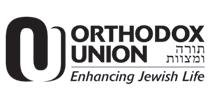
The ring also has special leniencies. Presumably, it is on the ring finger, and the retzuot go on the middle finger. Although many people do a wrap or a semi-wrap over the ring finger, this minhag is not found in the main halachic sources. Furthermore, the minhag is likely in order to “spell out” a dalet or a shin, not for the regular need to wrap the finger with tefillin (see Piskei Teshuvot 27:17). Therefore, it may make little or no difference if there is a chatzitza on the ring finger.
Additionally, it may be possible to put the retzuot beyond where the ring is. If there is only a slight overlap, then the Magen Avraham (27:5) raises a distinction (within the Rama’s opinion) between a large and a small chatzitza. On the other hand, this distinction does not seem accepted (see Mishna Berura 27:14). The idea of leaving the ring on all the time, which helps regarding netilat yadayim, likely does not help here (see Dirshu 27:(12)).
Despite all of the reasons for leniency, people are generally careful to remove their watch before wrapping on their tefillin. This is either a chumra or a way of showing extra reverence toward the dear mitzva of tefillin and is recommended by poskim (Teshuvot V’hanagot ibid.; Doveiv Meisharim II:37; see Pri Megadim, MZ 27:4). However, when there is any good reason to need to keep the watch or ring
on (even more so if he is able to apparently avoid overlap with the ring), he may be lenient as is fine according to the regular application of halachic rules (Yabia Omer ibid.).
Having a dispute?
For a Din Torah in English or Hebrew contact ‘Eretz Hemdah - Gazit’ Rabbinical Court: 077215-8-215 • fax: (02) 537-9626 beitdin@eretzhemdah.org

Old Katamon: 4-room apartment in a small and quiet street, 101 sqm, renovated, very bright and airy, master bedroom, Safe room (mamad), sukkah balcony, view, elevator, 3,400,000 NIS
Old Katamon: 4-room apartment, 90 sqm, well split, bright, airy, sukkah balcony facing a magnificent panoramic view, 3 exp Shabbat elevator, parking, 3,290,000 NIS
Katamon: new project, 2-3 room apartments, starting from 1,750,000NIS 4-5 room apartments starting from 3,200,000NIS all apartments with parking & storage
Old Katamon: Spacious 3-room apartment in a very quiet street, 75 sqm, sukkah balcony facing a green and pastoral view, 3 exp. Shabbat elevator, private parking, storeroom, 2,690,000 NIS
Baka: 4 room apartment, 82m, storage, elevator, needs renovation 3,000,000NIS
Arnona: 4 room apartment, 96m, master suite, balcony, fully accessible, private parking, 3,250,000Nis
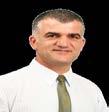
Old Katamon: 4-room apartment, 94sqm, balcony, open view, Shabbat elevator, fully accessible, private parking, 3,290,000NIS

Baka: 5-room garden apartment, 140m, master suite, private parking, storage, full of light, airy, nice garden, 5,250,000NIS
Old Katamon: Spacious new 5-room penthouse, 155m, terrace with great panoramic view, underfloor heating, full of light, Shabat elevator, 2 parking, rental unit, asking 9,000,000NIS
For rent • Baka: Charming 4-room apartment, 95m, architecturally renovated to a high standard, underfloor heating, a/c third floor, view, 7,300 NIS
• Baka: nice 4-room apartment, 82m, beautifully renovated, a/c, first floor, elevator, storage, 6,000 NIS
OU ISRAEL CENTER 51
Meir
Golan 077-2050015 052-2678749 golanechasim@gmail.com Meir Golan
WEITZMAN
Tragic Decisions
Last time we presented the tragic case of the couple who underwent fertility treatment, only to learn that there had been a mistake in the clinic. The baby girl born was not the genetic child of the parents, due to an embryo mix up. We saw that this raises the question as to how the halacha defines motherhood; is the genetic mother or the birth mother considered the halachic mother.
However, this recent case is much more complicated and somewhat unique. In past cases two women presented, one was the genetic mother and her egg had been used either on purpose or inadvertently in the fertility procedure. The other women was the one who carried and delivered the baby. These cases involved mistakes in fertility laboratories, or cases of gestational carriers who refused to hand over the baby to the genetic parents.
Our case only involves one woman, the woman who carried and delivered the baby, since the clinic has so far been unable to identify the genetic parents. The question here is not is the mother the birth mother or the genetic mother, the question is does the baby have a mother at all.
If we define motherhood by the woman who carries the baby and gives birth, then we know who the mother is. However, if we define halachic motherhood by the genetic mother, in our case the child has, as yet, no mother.
The question then becomes a completely different issue; should the clinic continue to search for the genetic parents? Is there a halachic obligation to do so? What should happen to the baby girl in the meantime? Can the birth mother continue to raise her until such time as the genetic parents are located? Should the baby be removed from her care and given over to foster parents while the halachic and legal status is being determined?
These are heart wrenching decisions, but they must be made as soon as possible, since the welfare of the child may be dependent on these critical decisions.
If the birth mother herself was not interested in declaring herself the mother, the child would have to be given into foster care. Is she able to do such a thing, or could we claim that since, according to some opinions, she is the halachic mother, must she raise the child, knowing that the girl is genetically related to someone else?
In this specific case the birth mother is interested in claiming to be the mother, and she has given the baby a name, Sofia. So what can be done about Sofia?
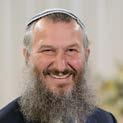
52 TORAH TIDBITS 1498 / VAYIGASH 5783
Machon Puah for Fertility and Gynecology in Accordance with Halacha RABBI GIDEON
Be’er Tziporah a"h - Bottled Water Gemach
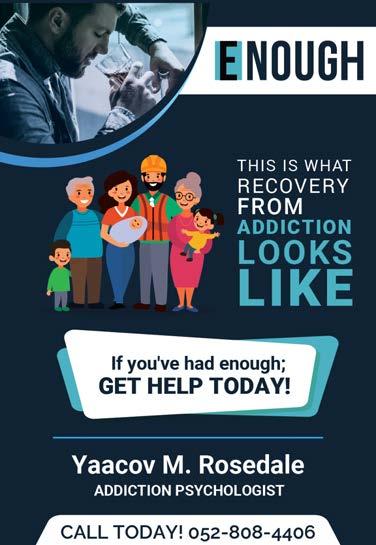

Walking down King George St. in Jerusalem and want a cold bottle of water? Come help yourself to a bottle at 52 King George. In loving memory of Yoni’s wife Tziporah a"h, a true Eishes Chayil, always full of chessed, kindness and laughter, and brought life and strength to so many people, that she touched! She was like Aron, who loved peace and pursued peace. Yoni thanks Hashem for having the opportunity of having Tziporah in his life, to learn of her caring, patience and happiness, to overcome her challenges. May Tziporah's Neshama be a light onto the world, in a time of darkness, and may her Neshama shine to Gan Eden. Yoni misses Tziporah with tears in his eyes, as Hashem gave him a gift, a crown jewel, now he returns her to Hashem. With thanks and Toda. Love, Yoni

OU ISRAEL CENTER 53
To help refill the supplysend tax deductible donations for
to
-
email Rabbi@JerusalemChabad.org 02 800-1717 www.JerusalermChabad.org/DonateShekels בוט יכ 'הל ודוה Flying Soon? Travel with Confidence 1UniTravel - Medical Insurance at great prices Choose from multiple options 1unitravel.brokersnexus.com 1UniSim - Sims for USA and Worldwide Starting at $40 sales@1unisim.com Call 077-400-3199 or USA 718-715-0001
Be’er Tziporah a"h Bottled Water Gemach
Chabad of Rechavia
Rabbi Yisroel Goldberg
TORAH VEHA'ARETZ
 INSTITUTE BY RABBI MOSHE BLOOM en.toraland.org.il
INSTITUTE BY RABBI MOSHE BLOOM en.toraland.org.il
Neta Revay and Shemitah
kedushat neta revay.
Even after the tree’s orlah years are over, the fruits hanging on it that grew during its orlah years are still considered orlah. For such fruits to become permitted, there are two additional factors involved:
The date 15 Shevat, Tu BiShevat, which is the new year for the fruits of the trees and Chanatah, the beginning of the fruit’s formation. The cut-off date for the orlah count for fruit is 15 Shevat following the end of the tree’s orlah year count.
SO: If you planted your tree from 15 Av 5779 to 15 Av 5780, only fruit that develops after Tu Bishevat this year (5783) will be neta revay. Fruit now is orlah.
If your tree was planted from 15 Av 5778 to 15 Av 5779, The fruit is now considered neta revay. Because the fruit began to form during the shemitah, it is are also hefker and has kedushat shevi’it and in addition, kedushat neta revay.
all trees planted between 15 Av 5778-15 Av 5779 are now in their neta revay year, so all fruit hanging on them now and in the coming months are considered fourth-year fruit.
Here there is an interesting phenomenon: the fruit has both kedushat shevi’it AND
There is an interesting discussion whether a chomesh must be added when redeeming the fruit, as is necessary when redeeming one’s own fruit (since it is ownerless this year). Bottom line halachah: We do add a chomesh to account for the opinion that hefker during shemitah means that the fruit BELONGS TO EVERY JEW (not to no one).
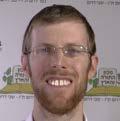
If the fruit is only possibly neta revay (might be fifth-year), redeem the fruit without a blessing.
The blessing on redeeming neta revay is as follows: “ונווצו ויתווצמב ונשדק רשא ...'ה התא ךורב יעבר עטנ תודפל”
Then say: “,ןכרעמ עבר תפסותב ,יעברה תוריפ עבטמב דרפנב עברו הטורפ לע בויח תגרד לכ ,םיללוחמ יליבשב ךכל תדעוימה.”
“The fruit of neta revay, plus a quarter of its value is now redeemed by transferring its sanctity to a perutah-and-a-quarter’s worth of my designated coin. This redemption applies to each type of produce in accordance to its level of obligation.”
54 TORAH TIDBITS 1498 / VAYIGASH 5783
#2
לייא תולבוה ד״סב www.premiummoving.co.il MovingPackingStorage 053-7272-815
OFEK ISRAELI






OU ISRAEL CENTER 55 Your journey to medicine starts in Ariel The first international Pre- med academic track (B.Sc.) in Israel! A firm foundation for Medical School. Prepares you for Medical Entrance exams. A three year program. Dorms available at additional cost. Opportunity to learn Hebrew. for more details- Ora Geller +972.39066239 internationalpremed@ariel.ac.il
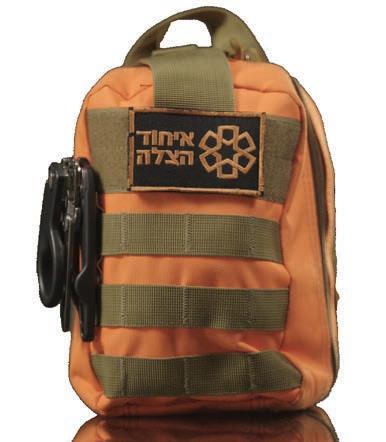
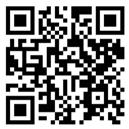
56 TORAH TIDBITS 1498 / VAYIGASH 5783 FOR YOU IT IS A TACTICAL TRAUMA KIT FOR THEM IT IS A LIFE! $360 TO SAVE A LIFE UNITED HATZALAH HELP SAVE LIVES! SCAN TO GIVE TODAY! israelrescue.org/kit IN 2022, ISRAEL HAS SEEN 10% INCREASE IN TRAUMA CALLS AND 61% INCREASE IN TERROR ATTACKS
Real Life Rescues

EMT Saves a Woman from Severe Anaphylactic Reaction in Jerusalem
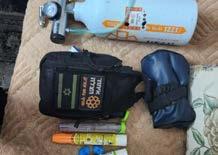
I was in the Arzei Habira neighborhood around 6:30 A.M. on Friday morning when my proximity alert went off notifying me about a medical emergency occurring in the old city. I understood that if I got alerted, it meant that I was one of the closest people available.


I got on my ambucycle and drove through the alleys to the Armenian quarter where the address of the emergency was. I arrived at the apartment and as I went inside I found a 72-year-old Armenian woman suffering from severe shortness of breath and having great difficulty moving. I immediately recognized the signs and understood that she was indeed suffering from a very serious anaphylactic reaction.
I sat her down, and with a quick check I found that her airways were almost completely blocked, I provided her with assisted ventilation, her pulse was undetectable, and I quickly injected her with a shot of adrenaline from the EpiPen that I carry. I continued checking her vital signs and called for backup.
The woman was in and out of consciousness, so when a paramedic arrived, I consulted with him and we decided on injecting the woman with adrenaline once again, this time in front of the paramedic's kit. Thus far her pulse was still undetectable.
After the second shot, the woman's condition began to stabilize. She slowly began regaining color and her breathing got a bit easier but she was still in respiratory distress.
After another 15 minutes, a mobile intensive care ambulance team arrived and they succeeded in opening an IV line. We then transferred the woman through the narrow alleys and complex stairways as quickly as possible to a waiting mobile intensive care ambulance that transported her to the nearest hospital. My early intervention bought her enough time to keep her alive until she could receive the help that she needed.
OU ISRAEL CENTER 57
1221


58 TORAH TIDBITS 1498 / VAYIGASH 5783 Whether you need a school, therapist, doctor, camp, or don’t even know what you need, we’re here to pinpoint the perfect solution for your child – with the largest and most up-to-date resource and referral database in the Jewish world for disabilities. IVDU SUMMER J.U.F OUR WAY REACH This is Yachad. REACH Your guide to navigating developmental disabilities 1-877-REACH-52 Reach@ou.org Baltimore Chicago Cleveland Israel Los Angeles New England New Jersey New York South Florida Toronto Yachad_Universe When you’re not sure which trail is right, you use your map When you’re not sure what’s right for your loved one with disabilities, call REACH

OU ISRAEL CENTER 59
TORAH 4 TEENS
BY TEENS NCSY ISRAEL


Gabriel Sachs Madrich Vayigash
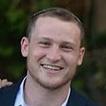
— Confrontation
“And Yosef saw his brothers, םֵרִּכַּיַו —identified them, םֶהיֵלֲא ר ֵּכַנְתִּיַו —and alienated himself to them…”
How often do we alienate ourselves in defense from a reality we don’t really know?
Perhaps Yosef’s trauma got the better of him. Perhaps he really did think his father had a hand in getting rid of him too, as often suggested. Perhaps, in a desperate attempt at justice, he wanted to imprison and thus save his only innocent youngest brother from what seemed to be his murderous family. He and Binyamin can continue G-d’s plan without them, just like Ya’akov vs. Esav, or Yitzchak vs. Ishmael. However, when we ourselves fail to accept reality, it may begin to assert itself to us.
“שַׁ֨גִּיַּו—Yehuda confronted him…”
Ultimately via Yehuda, the pain, humanity, regret and love of his family became piercingly undeniable, and Yosef let his guard down, “bursting out his voice crying…
“…I’m Yosef…”
Prejudiced through pain, we often shut down from certain moments or people, lest we suffer a terrible flashed-back fate. Yet, in doing so, we often deny life its true joy.
Sometimes, the solution is to confront, שגיו, ever slowly, yet ever surely, humbly realizing that we never really know. To ששגל, feel out reality, with all its variability, trusting in the goodness of G-d and His handiwork, is the only way to live fully.
May we, like Yosef, merit to reveal the vulnerability—and through that the joy— underneath our fear. May we merit שגיו!
Kayla Feigenbaum 11th Grade, Efrat Responsibility
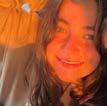
The Midrash Rabbah (93:6) at the very beginning of the Parsha explains that the meaning “הדוהי וילא שגיו”, is that Yehuda was prepared to go to war with Yosef. While it is endearing to see such a brave act of protectiveness, the brothers, while certainly strong, were incredibly outnumbered and had a very slim shot. This begs the question, why was Yehuda ready to go to the extreme of a doomed war?
Moshe Bogomilsky on the Chabad website suggests that Yehuda told Yosef “We are Jews, and Binyamin is a young member of our people. When even one Jew is in danger spiritually, it is the responsibility of all Jews to do everything in their power to save him and return him safely to his father — Hashem — and the Torah. Remaining in Egypt would spell assimilation for Binyamin. Therefore, we will do anything, and even endanger ourselves, to
60 TORAH TIDBITS 1498 / VAYIGASH 5783
save our brother.” This clearly illustrates הזב הז םיברע לארשי לכ. While each of us has our own life and our own purpose, we also each have a place in the collective ללכ לארשי and it is our duty to look out for one another.



With Chanukah having passed this week we are reminded of the times of the ומשח םיאנ, when many Jews were struggling spiritually. Maybe the םיאנומשח were not only fighting for their own religious freedom from the Assyrian Greeks, but also fighting to save their brothers from assimilation. If this is true, then Chanuka is a time not only to thank Hashem for returning Jewish sovereignty to the Land of Israel, but also a time to consider how we might be able to reach out to others and try to bring them along with us to greater attachment to Hashem and His Torah.
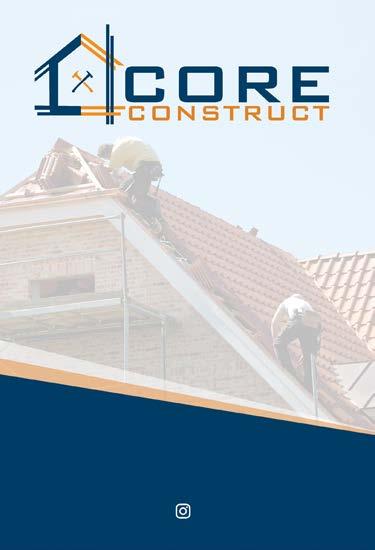
OU ISRAEL CENTER 61

62 TORAH TIDBITS 1498 / VAYIGASH 5783 Start your new life in Israel at Ariel University Master of Business Administration (MBA) Unique opportunity for Olim at Ariel University a two-year MBA program for English-speaking students Ariel University, in cooperation with the Jewish Agency for Israel and the Ministry of Aliyah and Integration Student Authority, is offering a special program for Olim MBA studies in English first year. Additional grants / Stipends from the university and the student Authority. Full tuition scholarship from the Israel Student Authority for eligible students. The program schedule enables students to combine work and study. Personal guidance by a counselor and program coordinator. Subsidized and flexible residential accommodations subsidized dormitories in AU, or center for young adults in Tel Aviv, or independently. contact: massis@ariel.ac.il +972.52.3849113
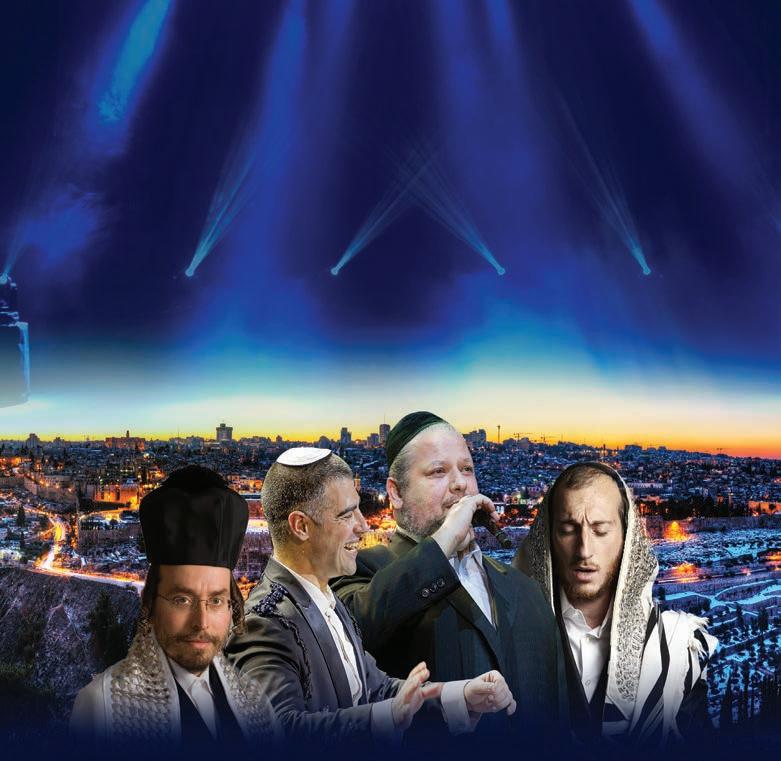
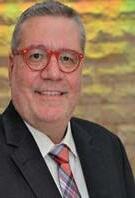

OU ISRAEL CENTER 63

























































































































































 INSTITUTE BY RABBI MOSHE BLOOM en.toraland.org.il
INSTITUTE BY RABBI MOSHE BLOOM en.toraland.org.il




























